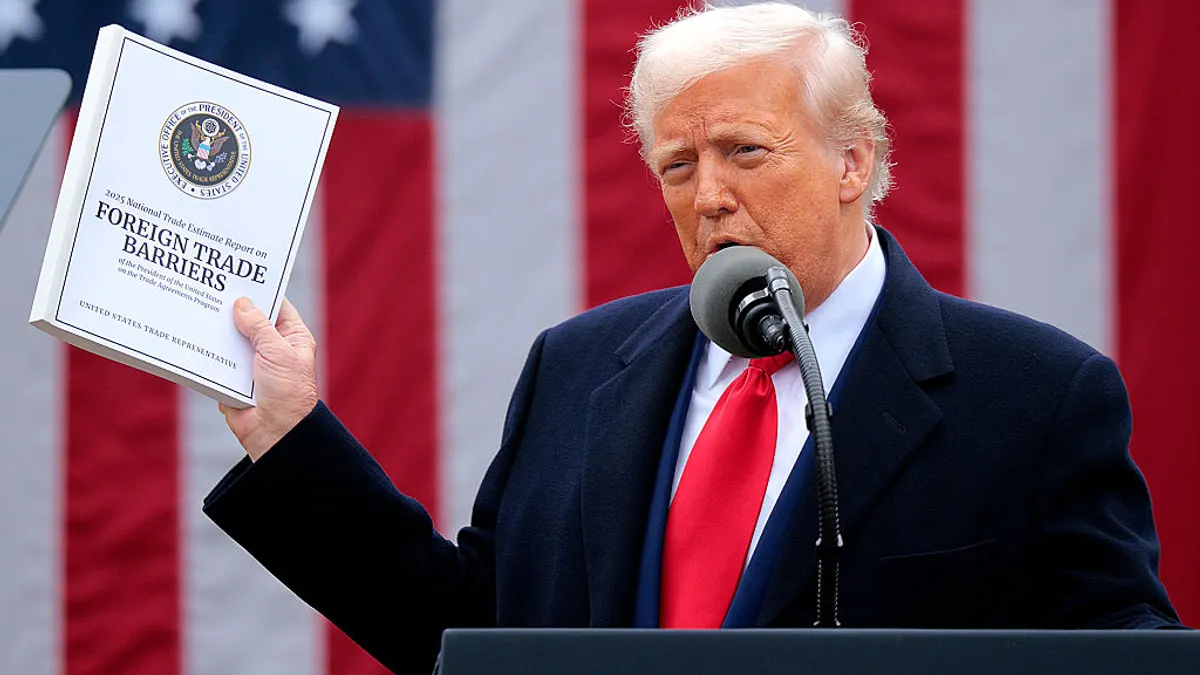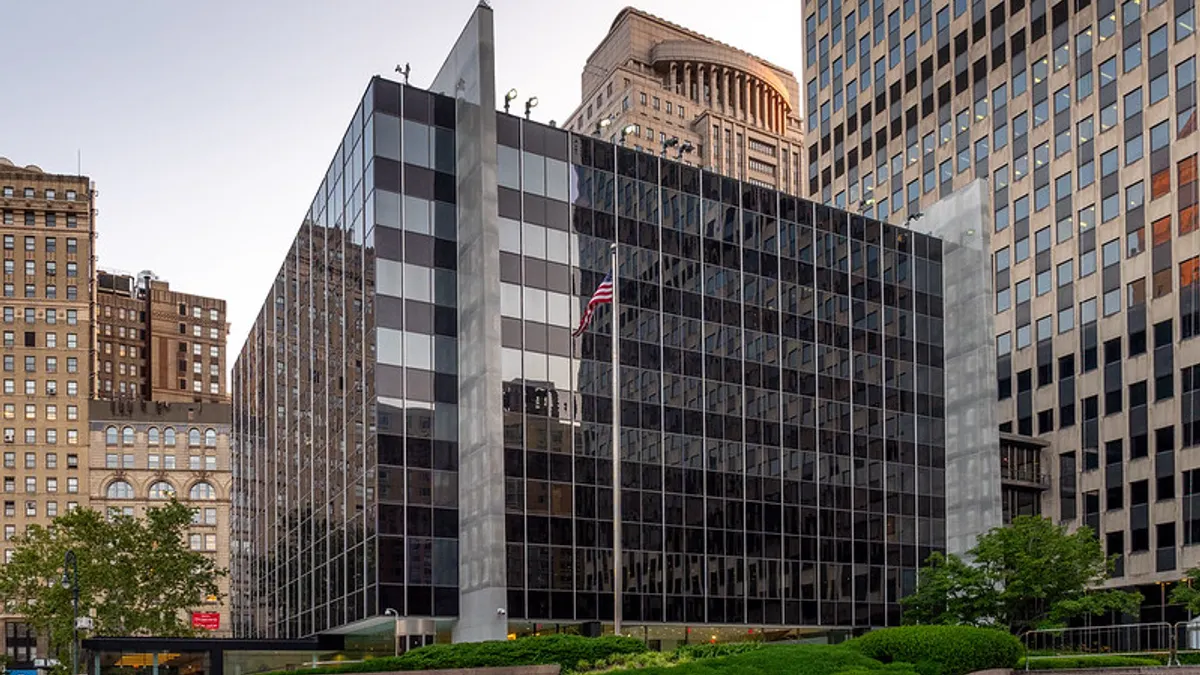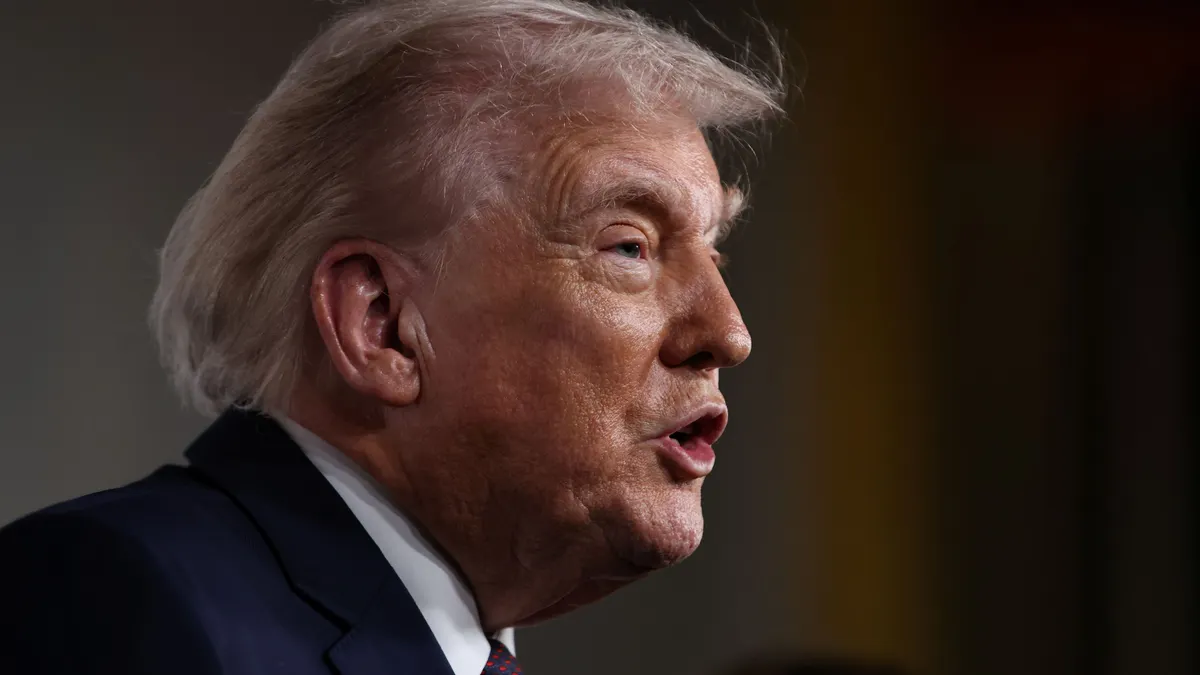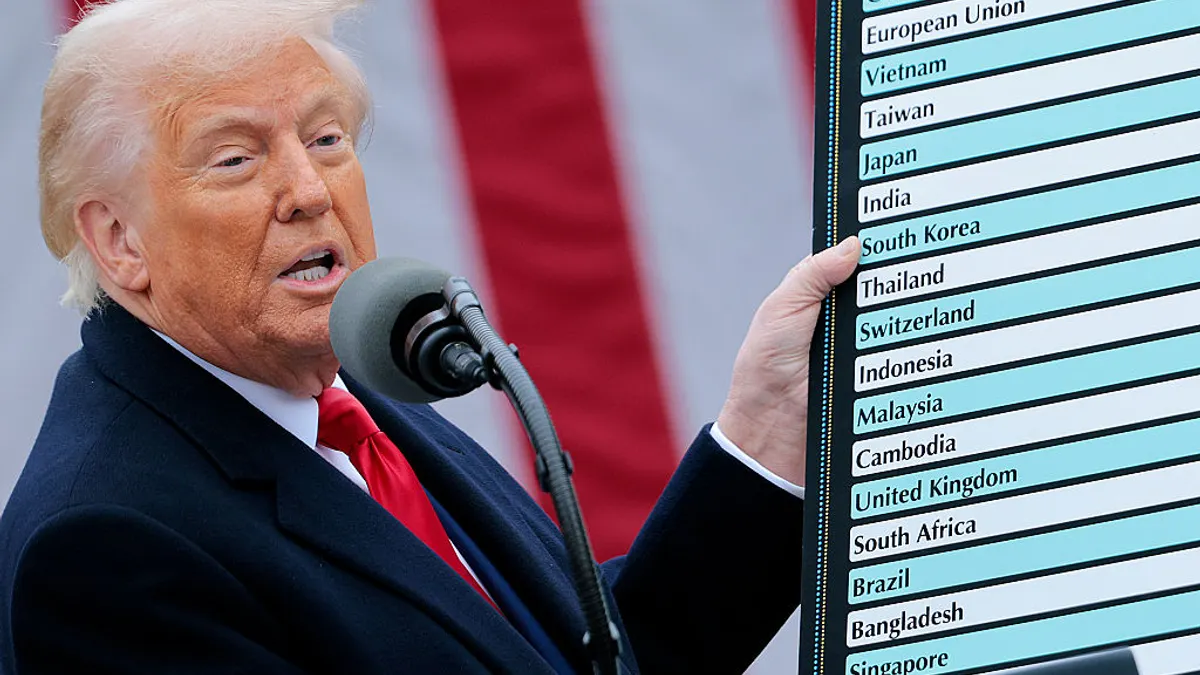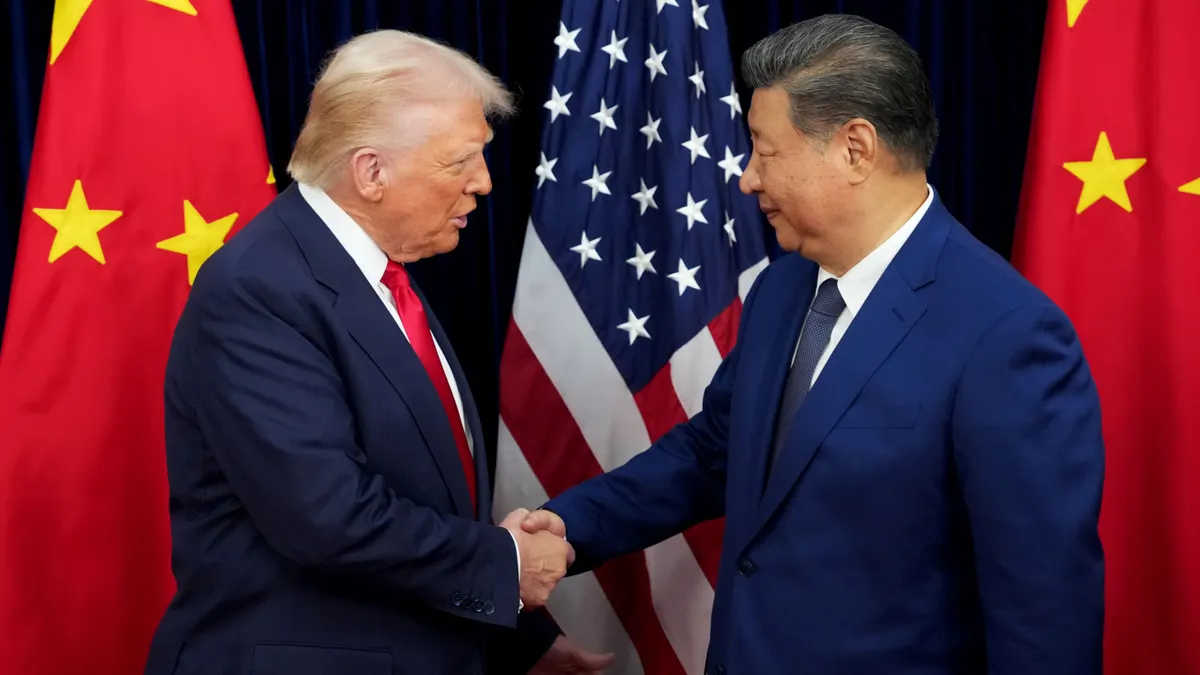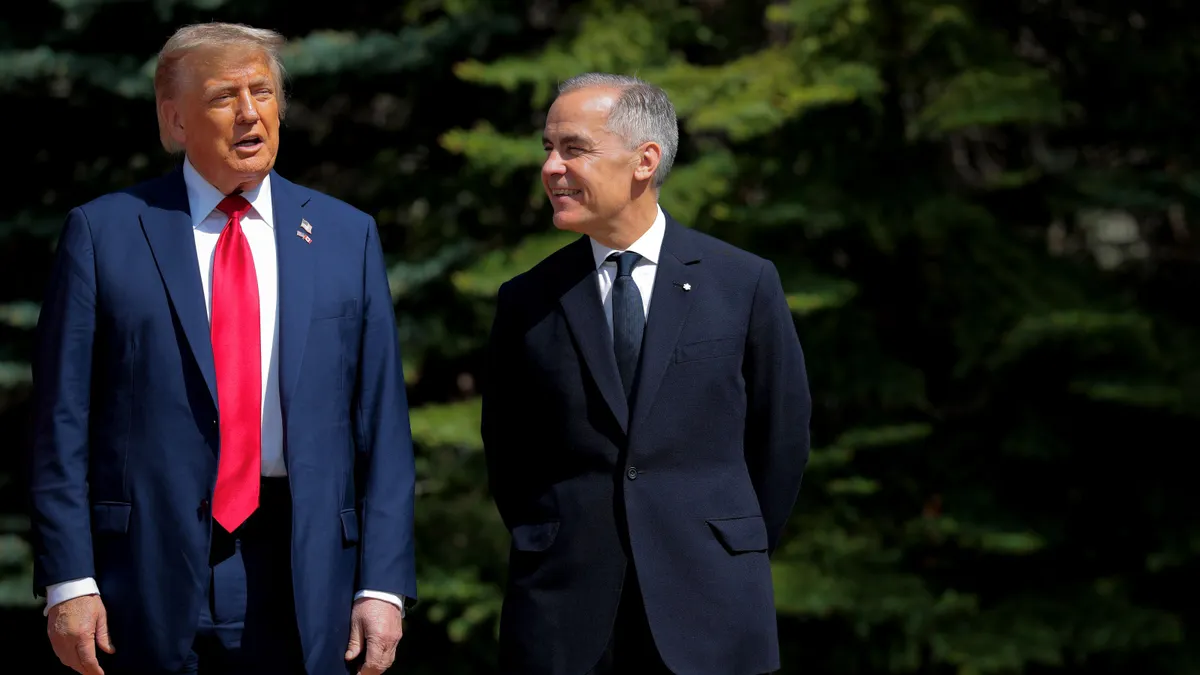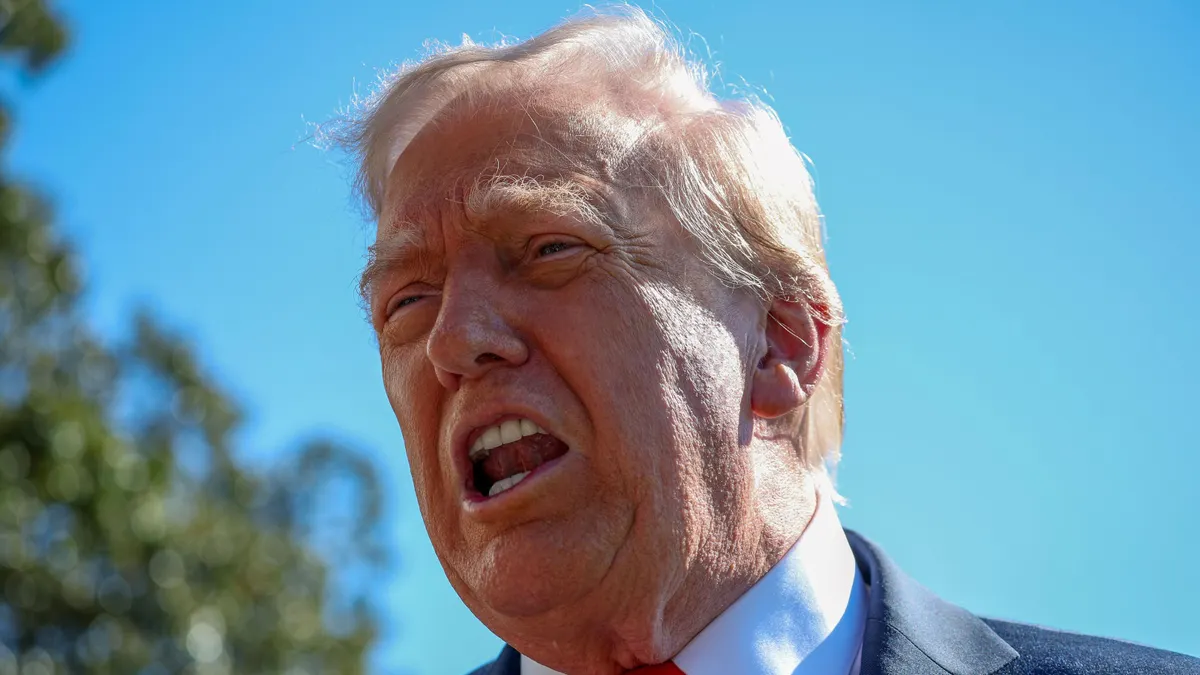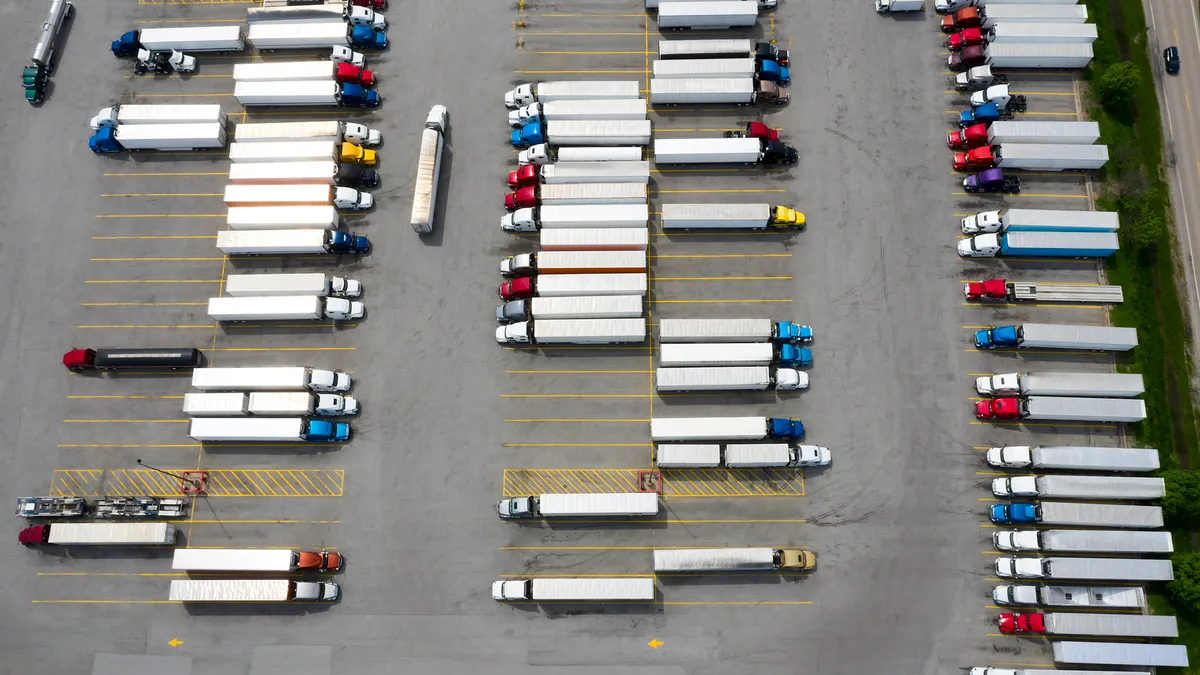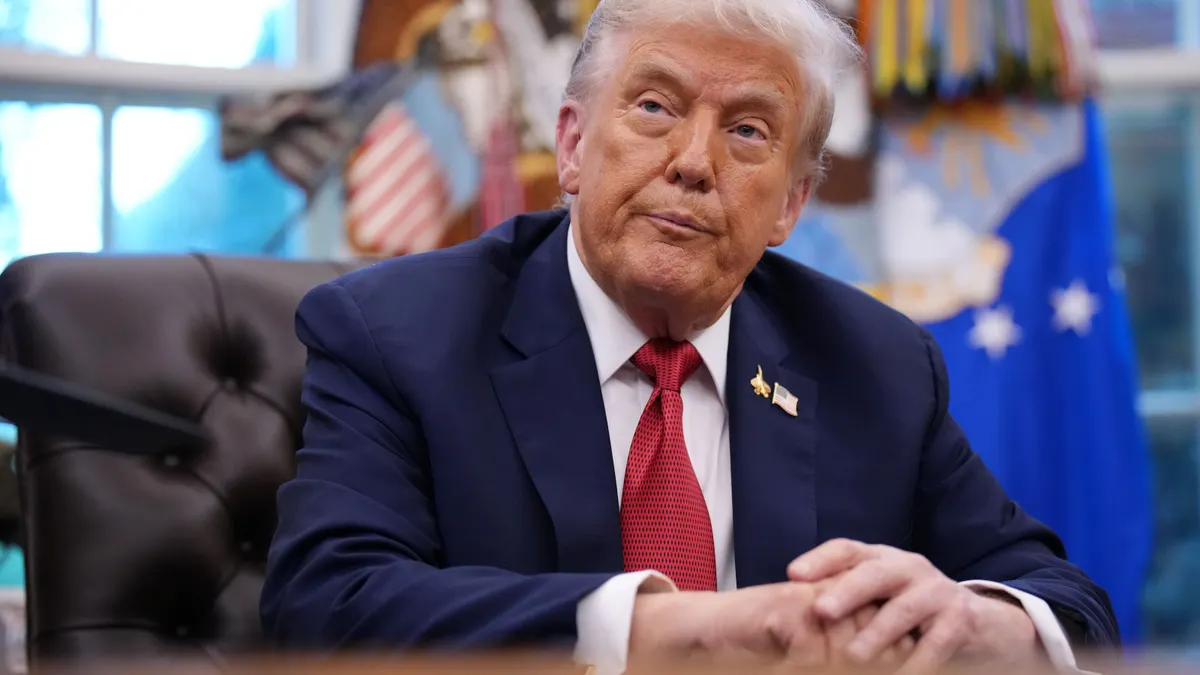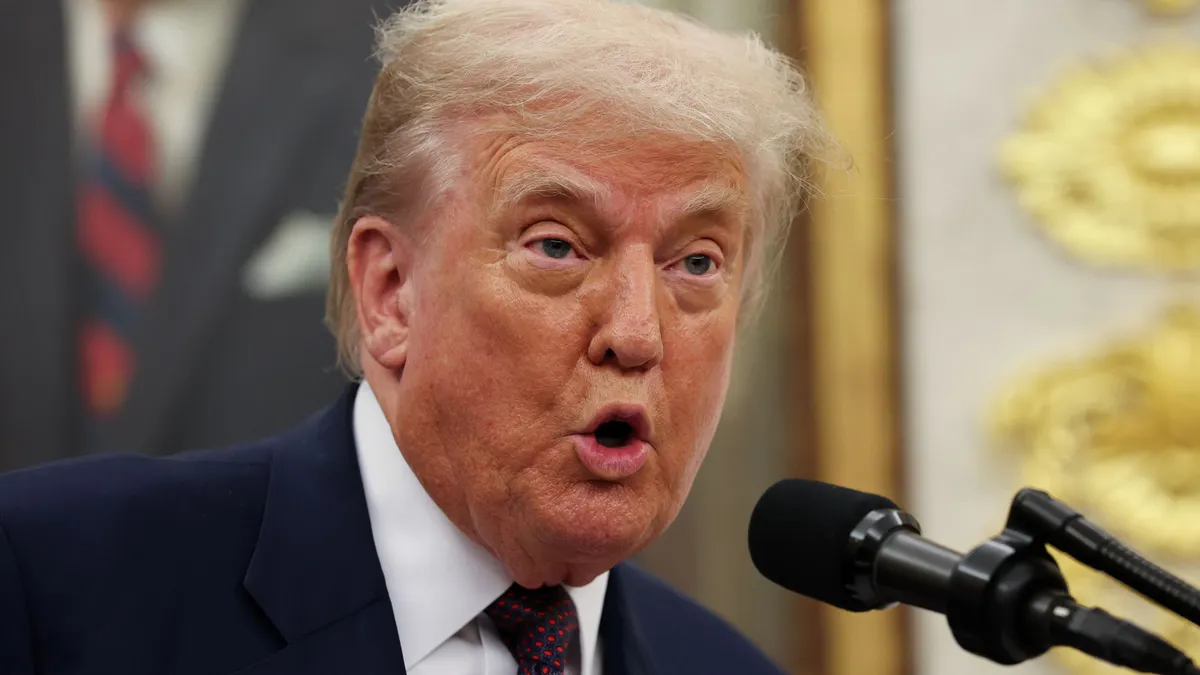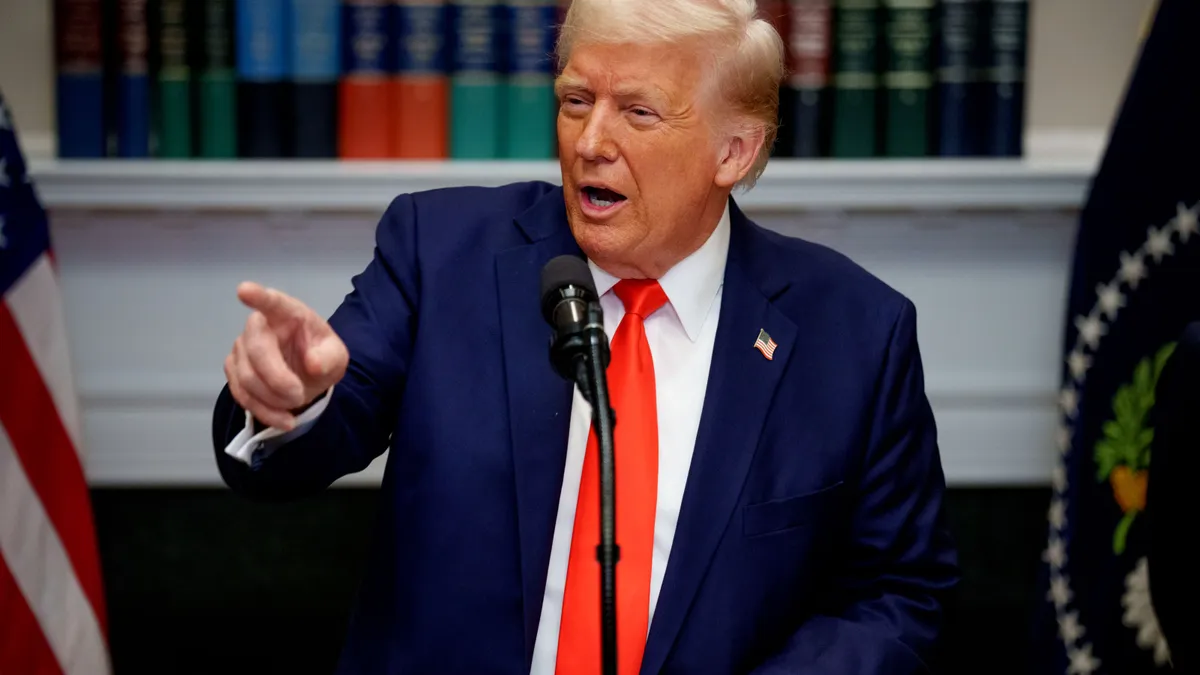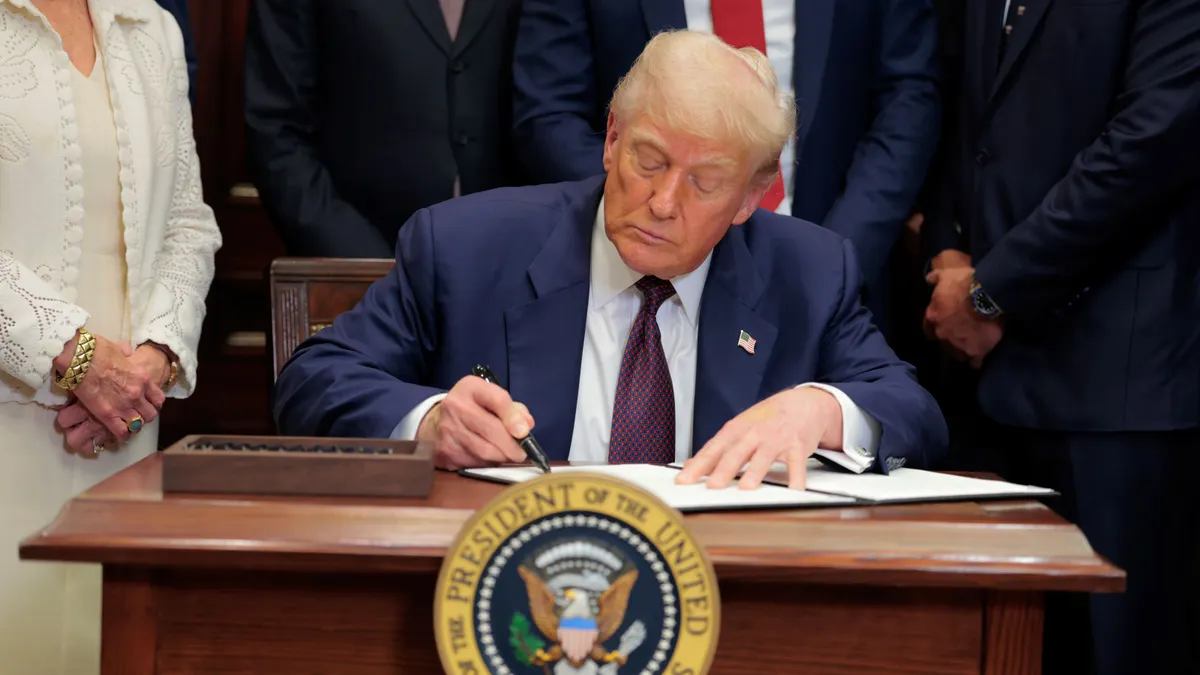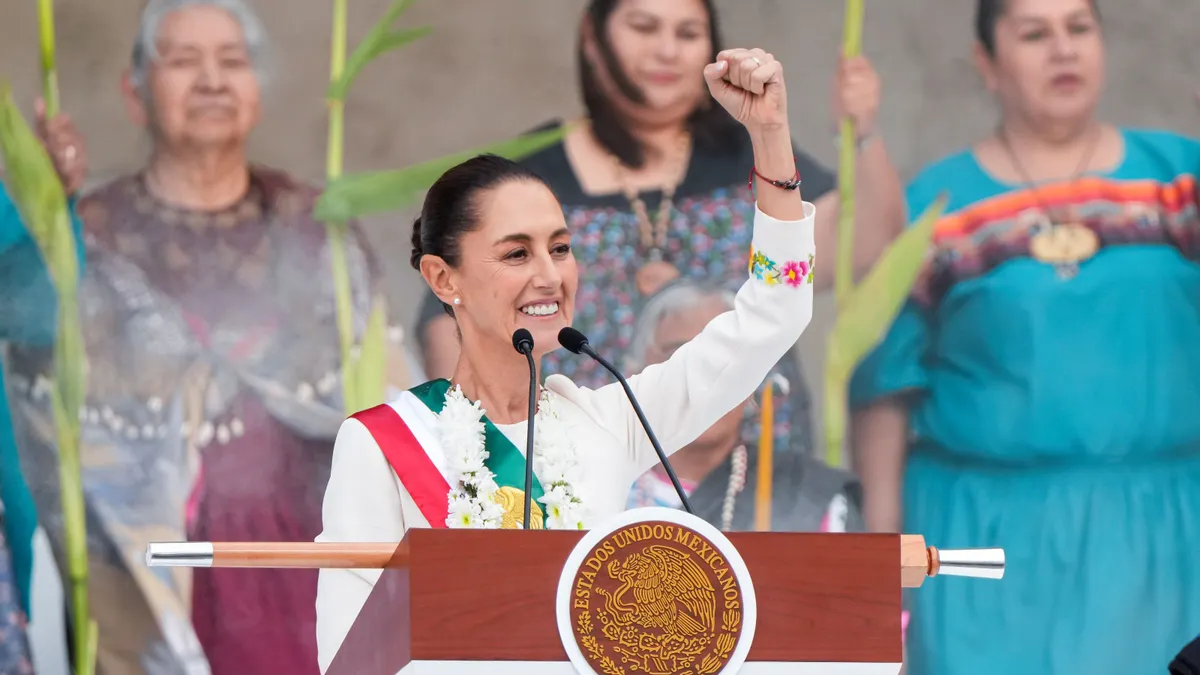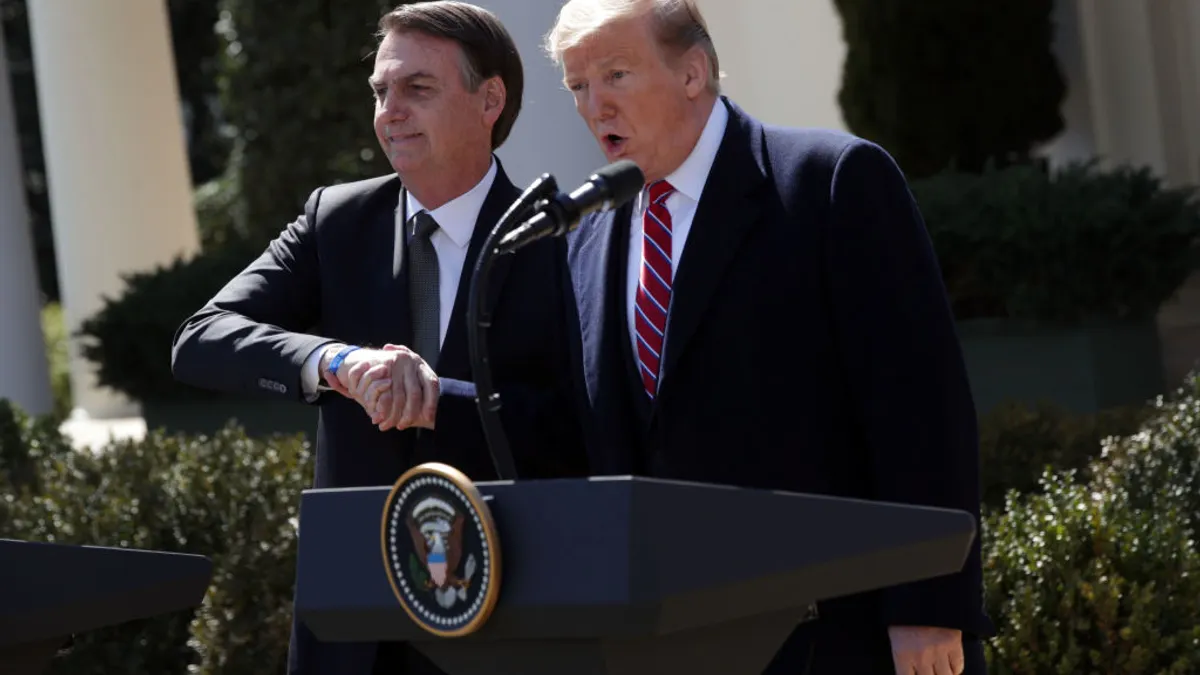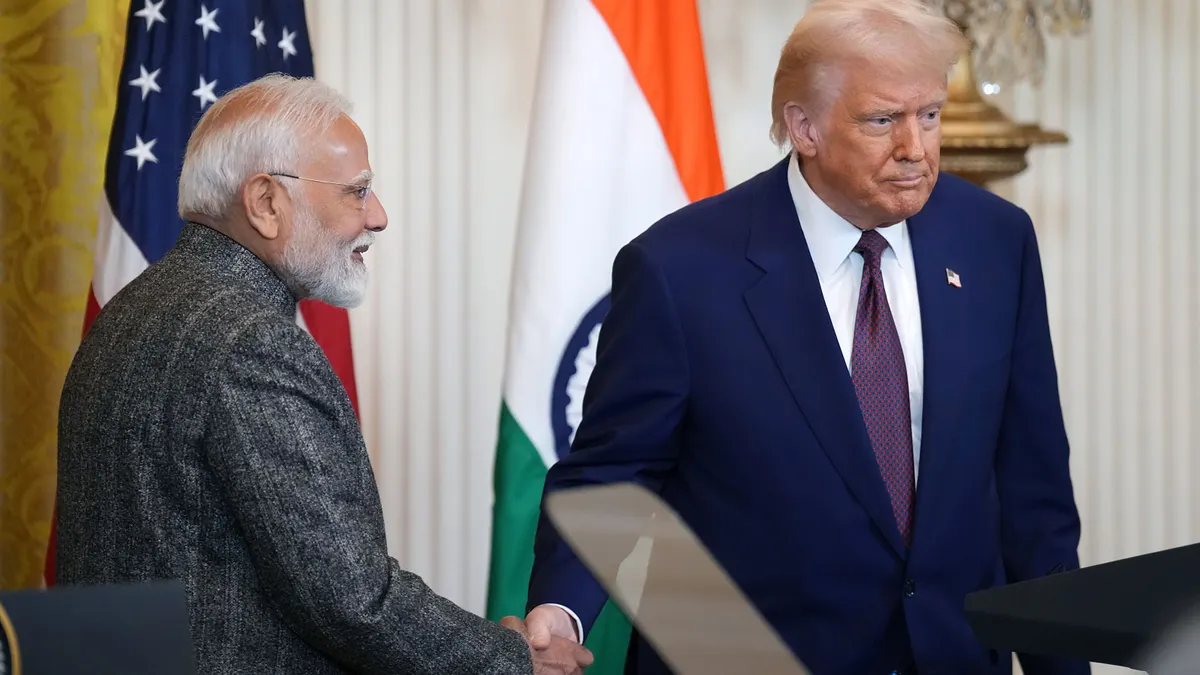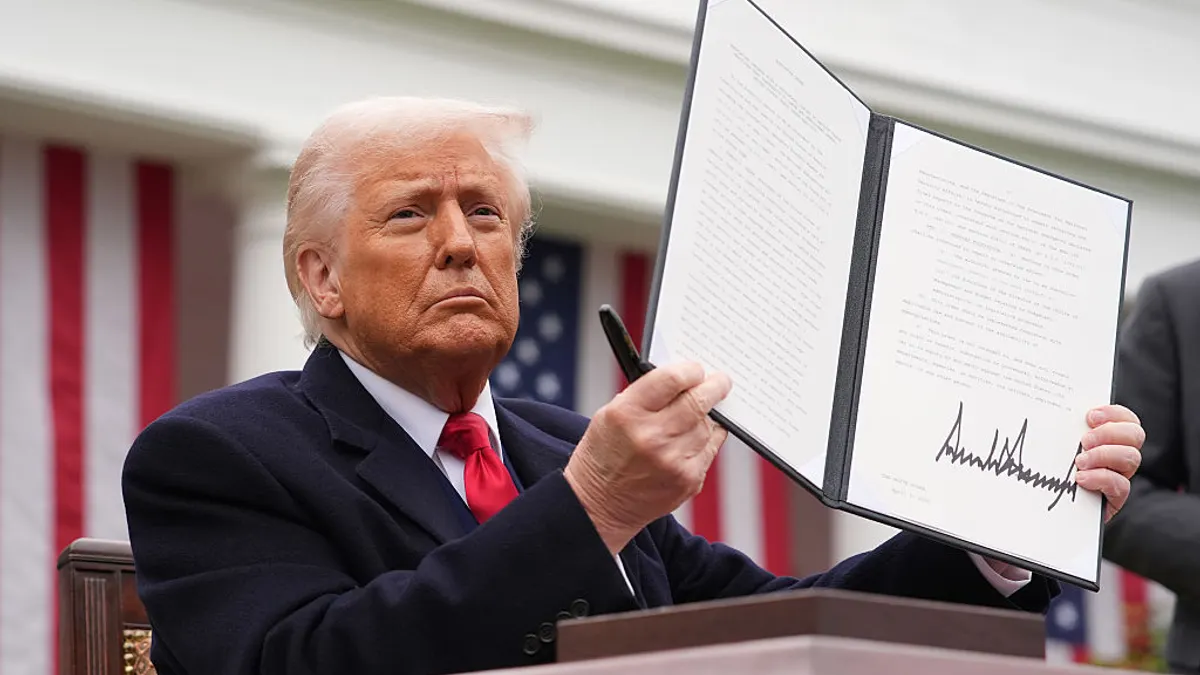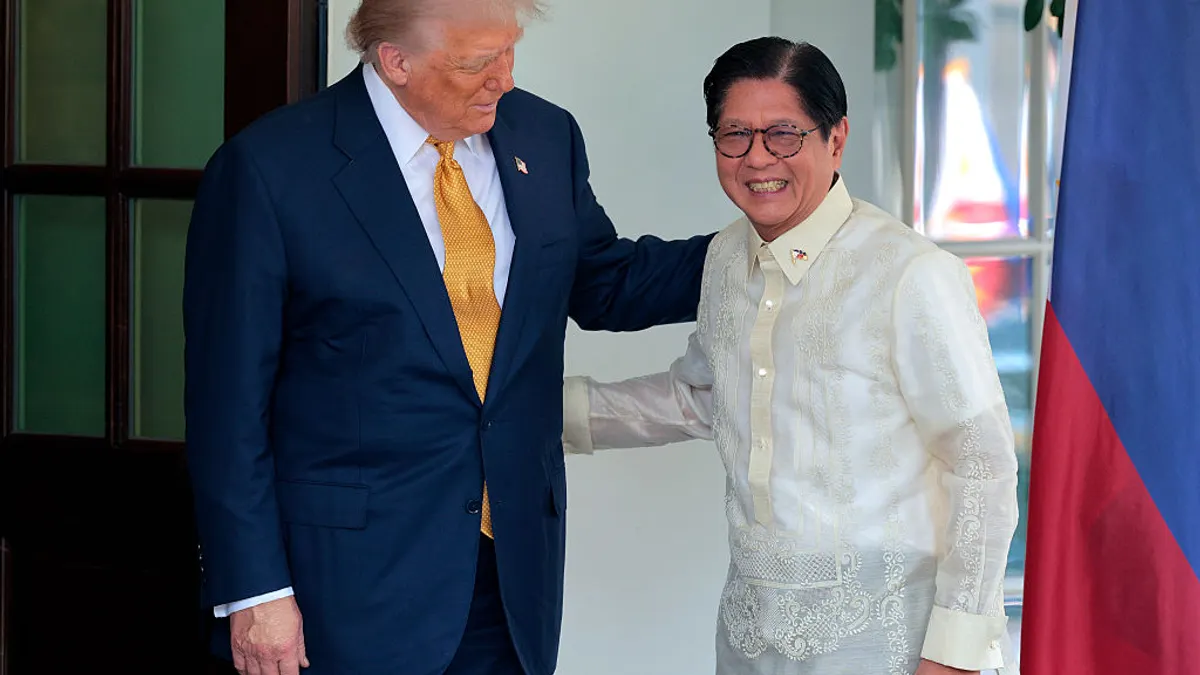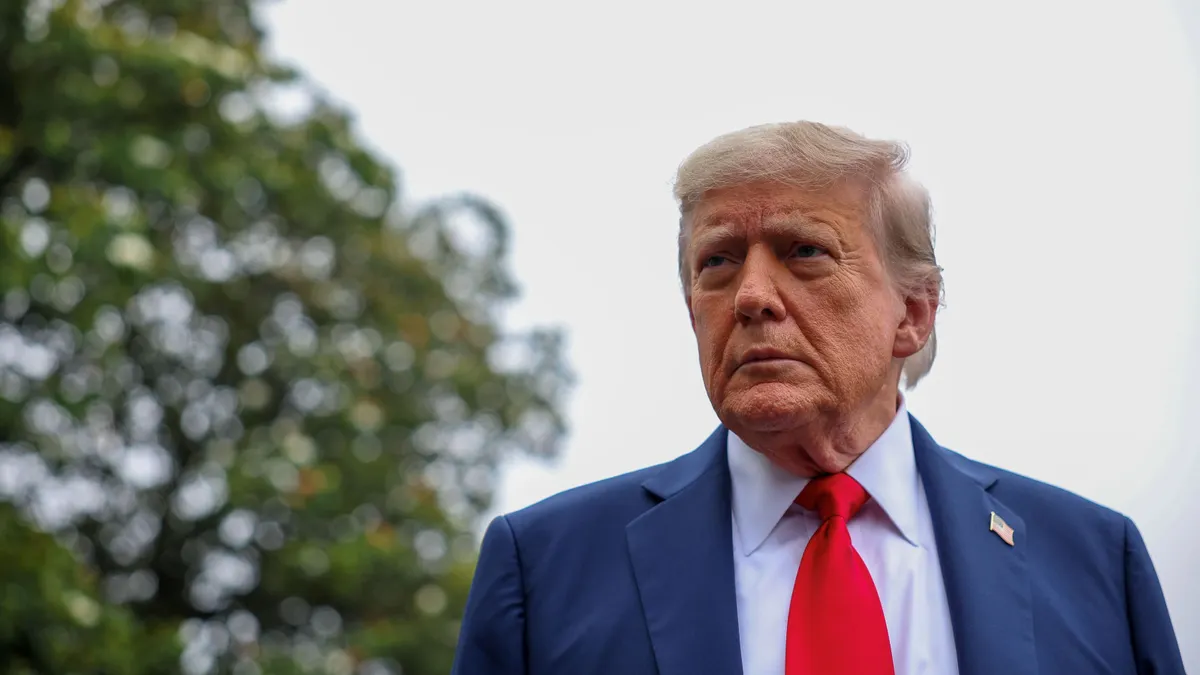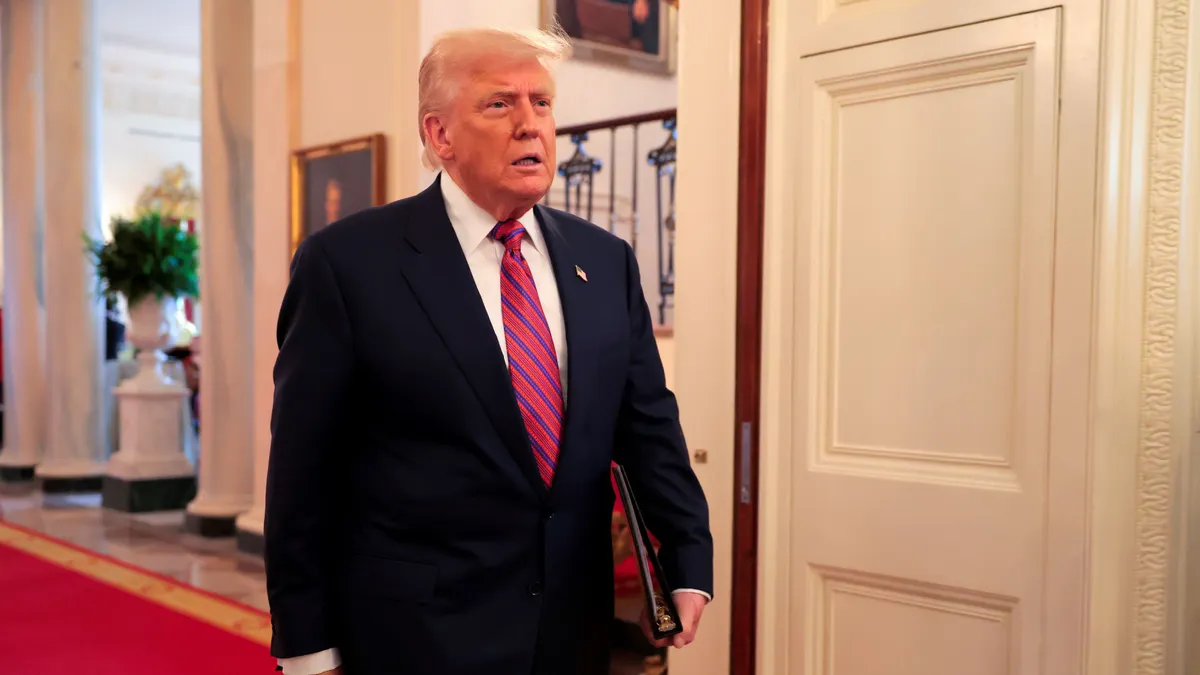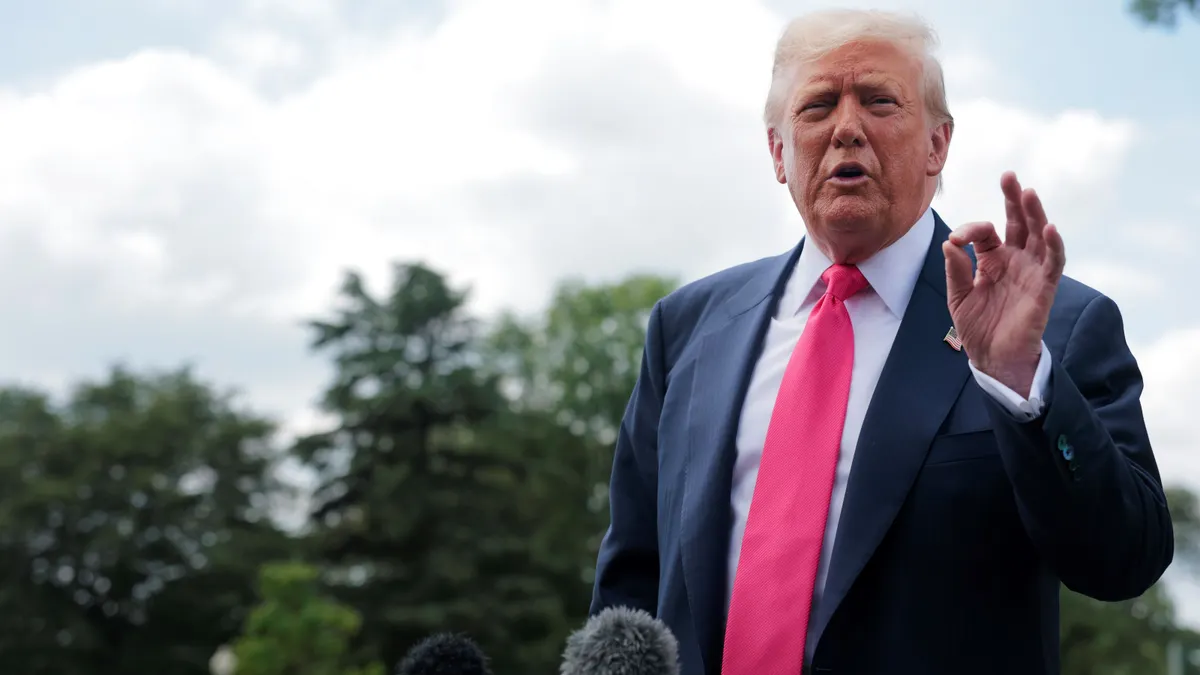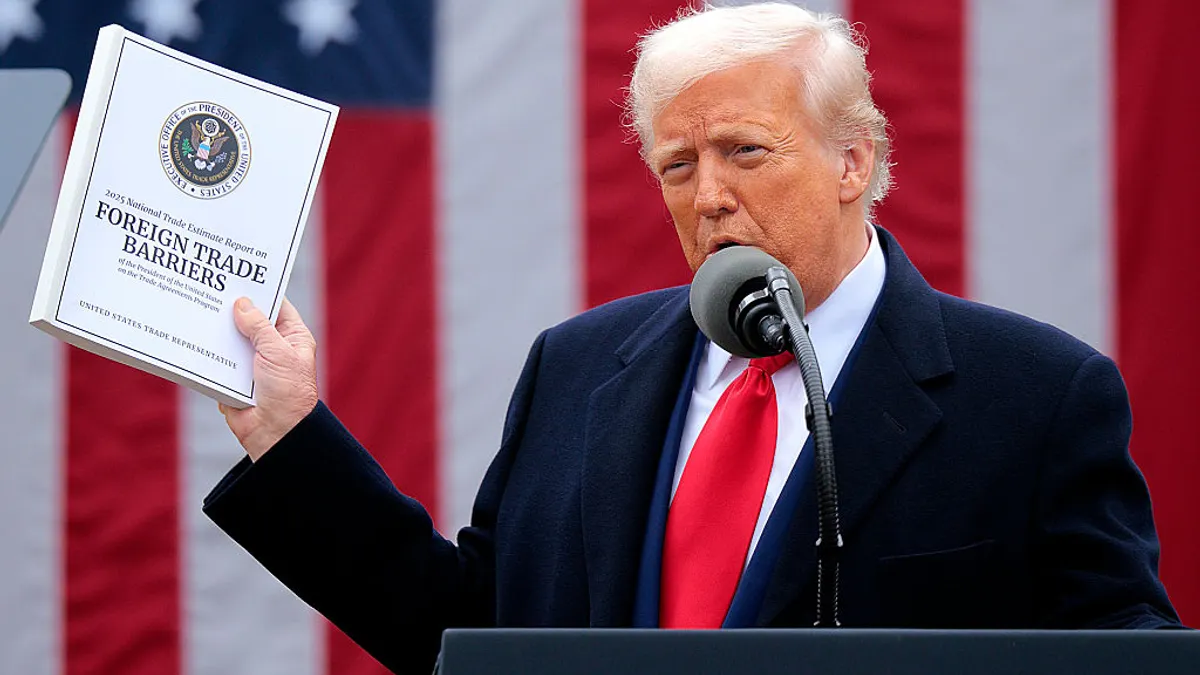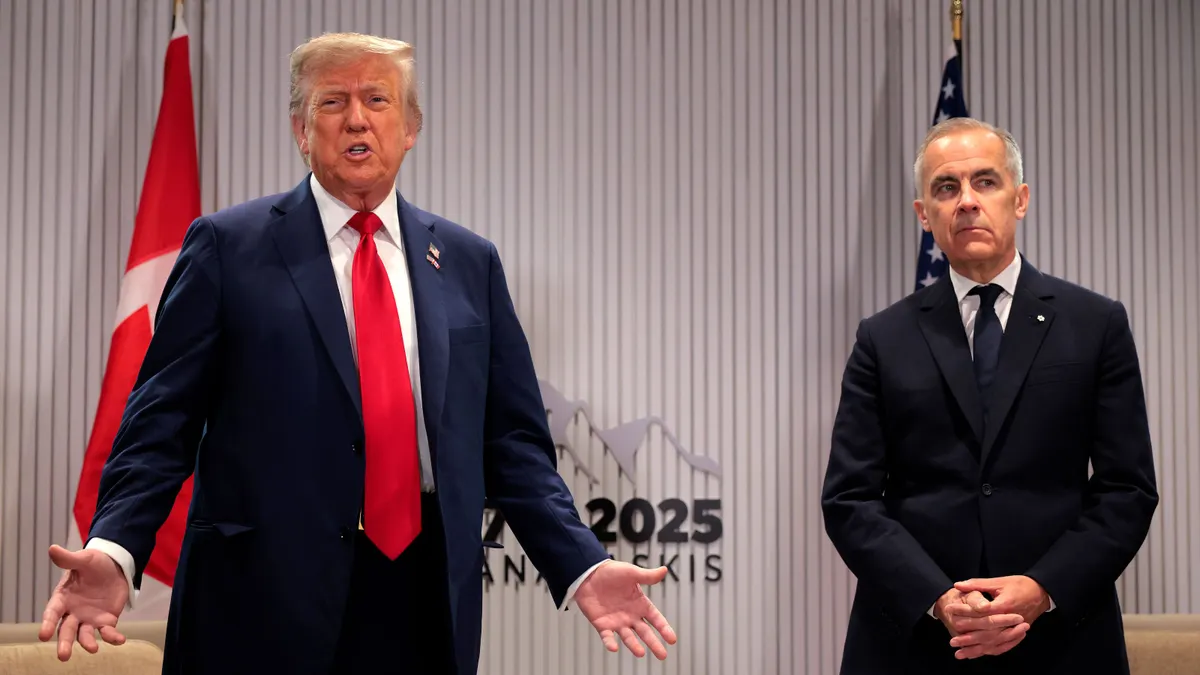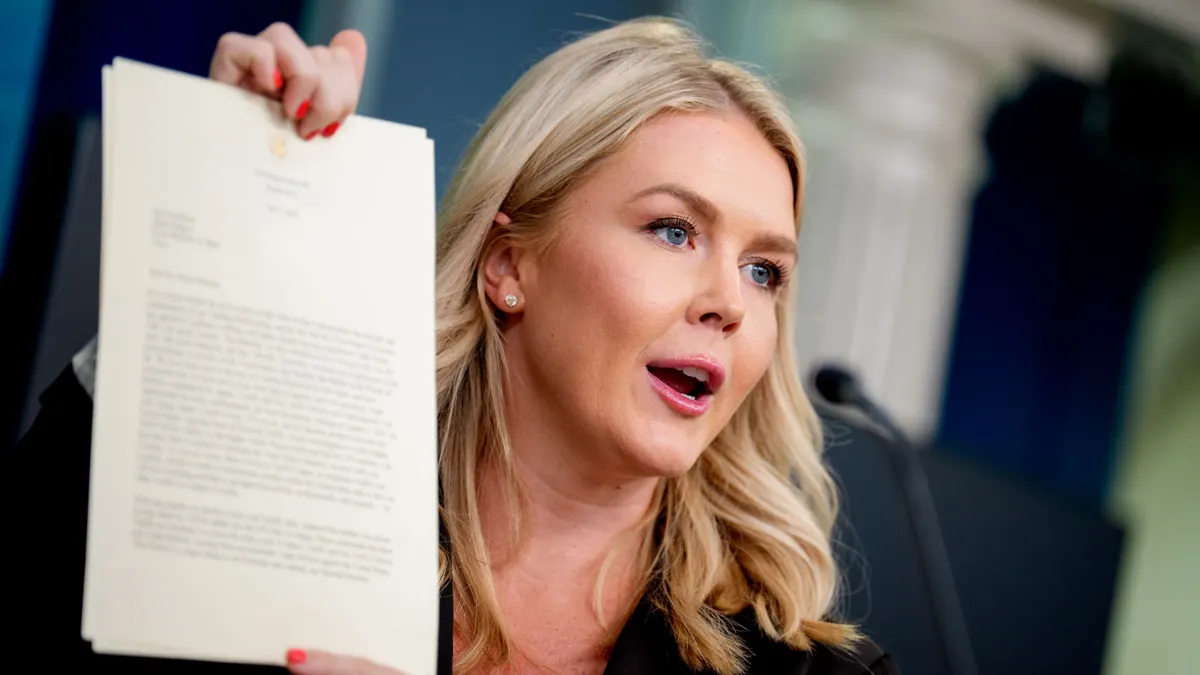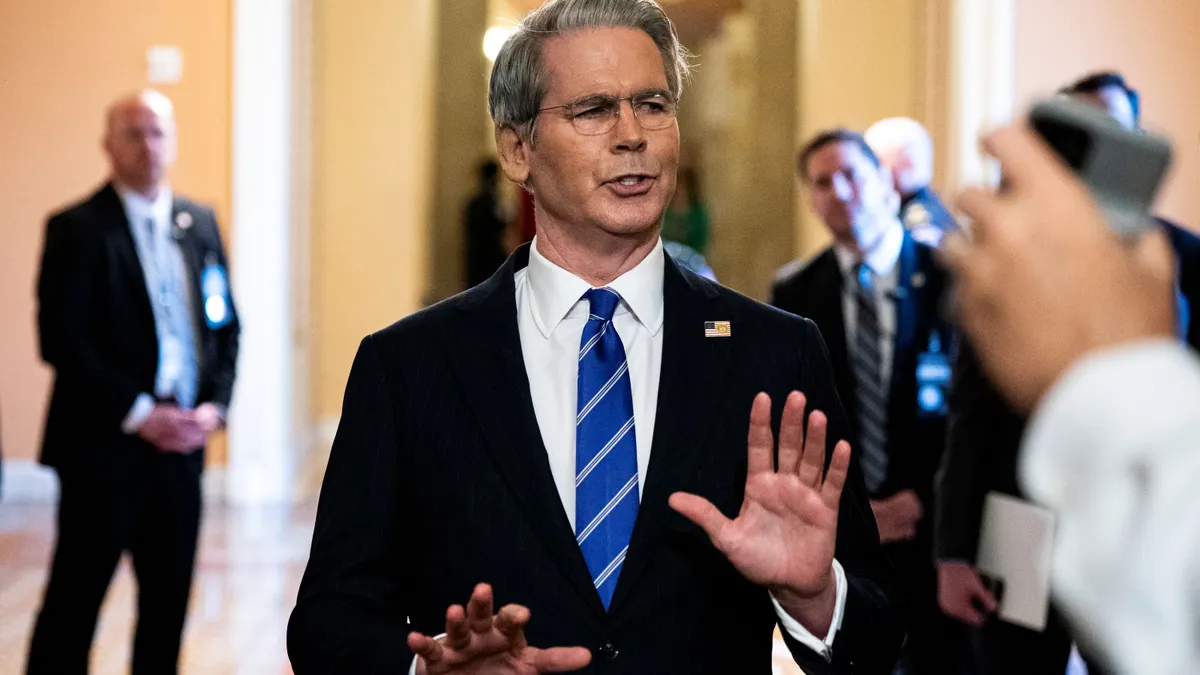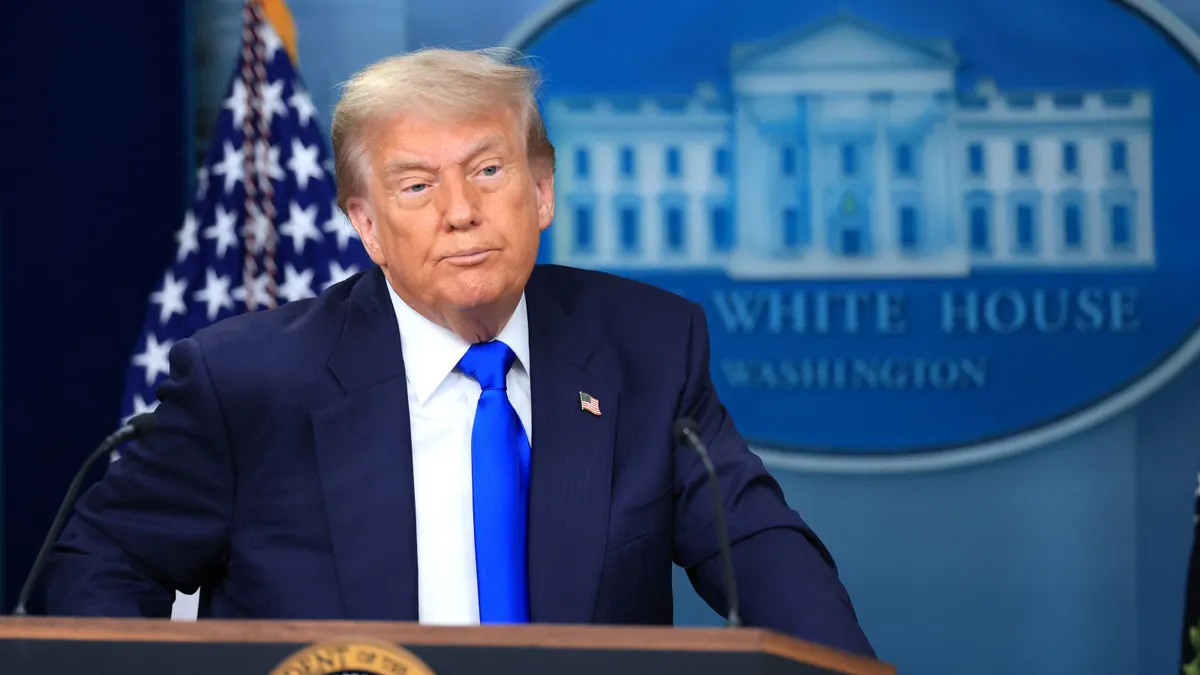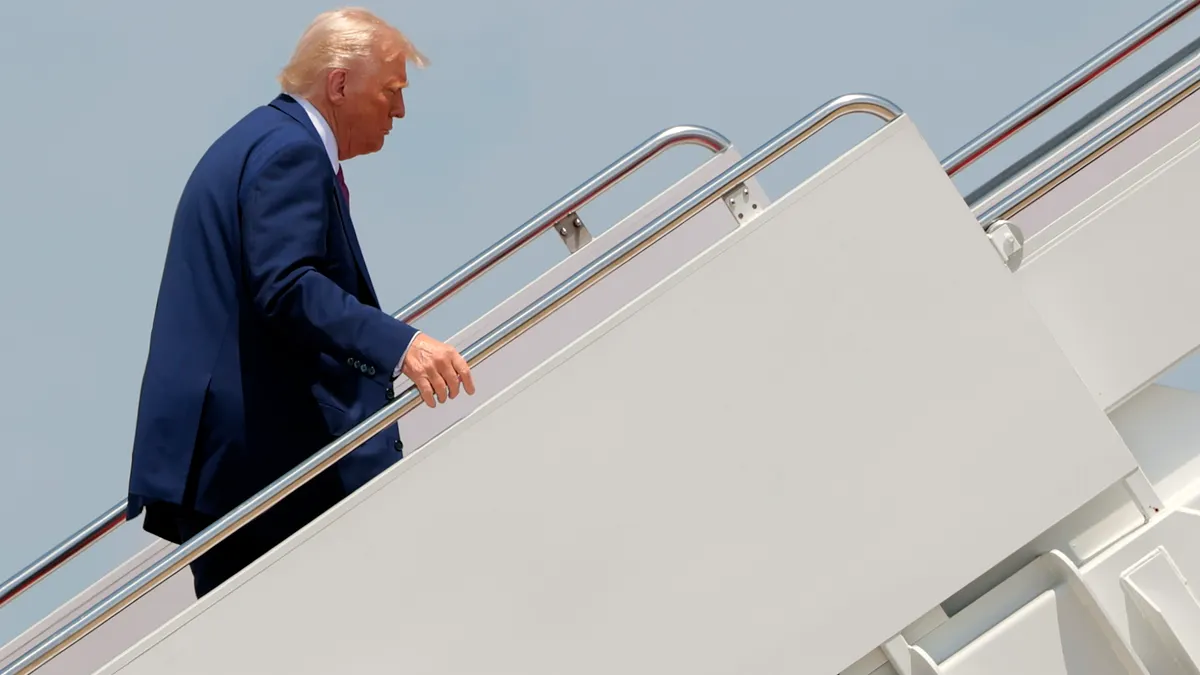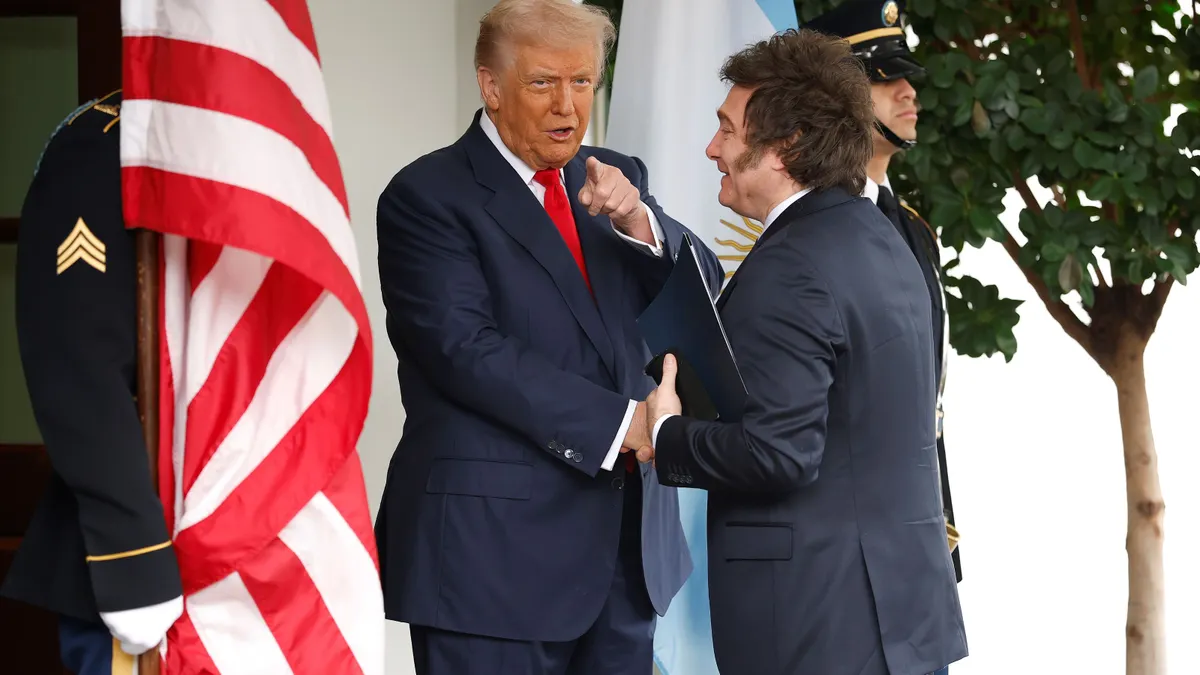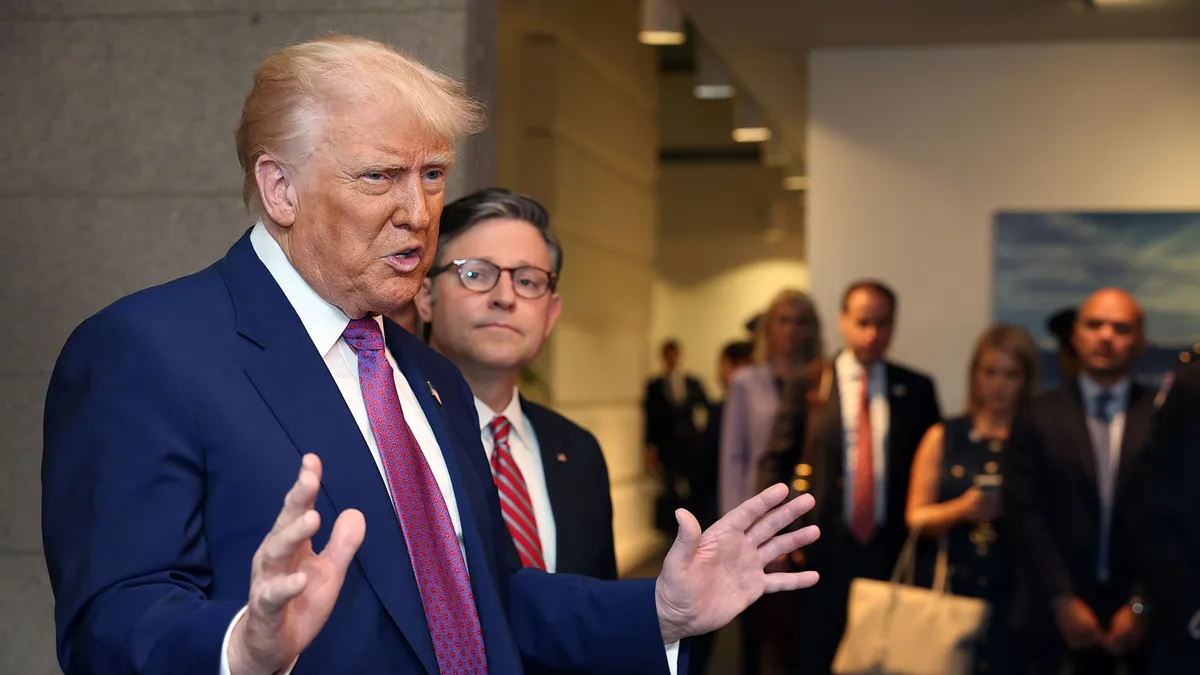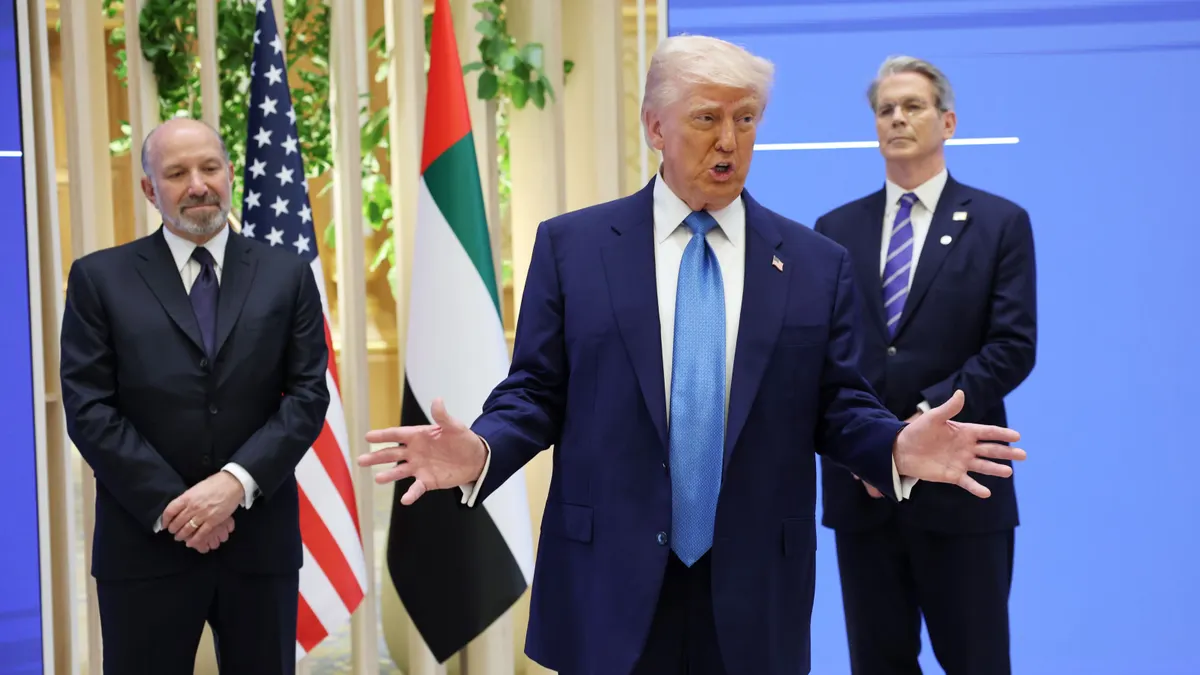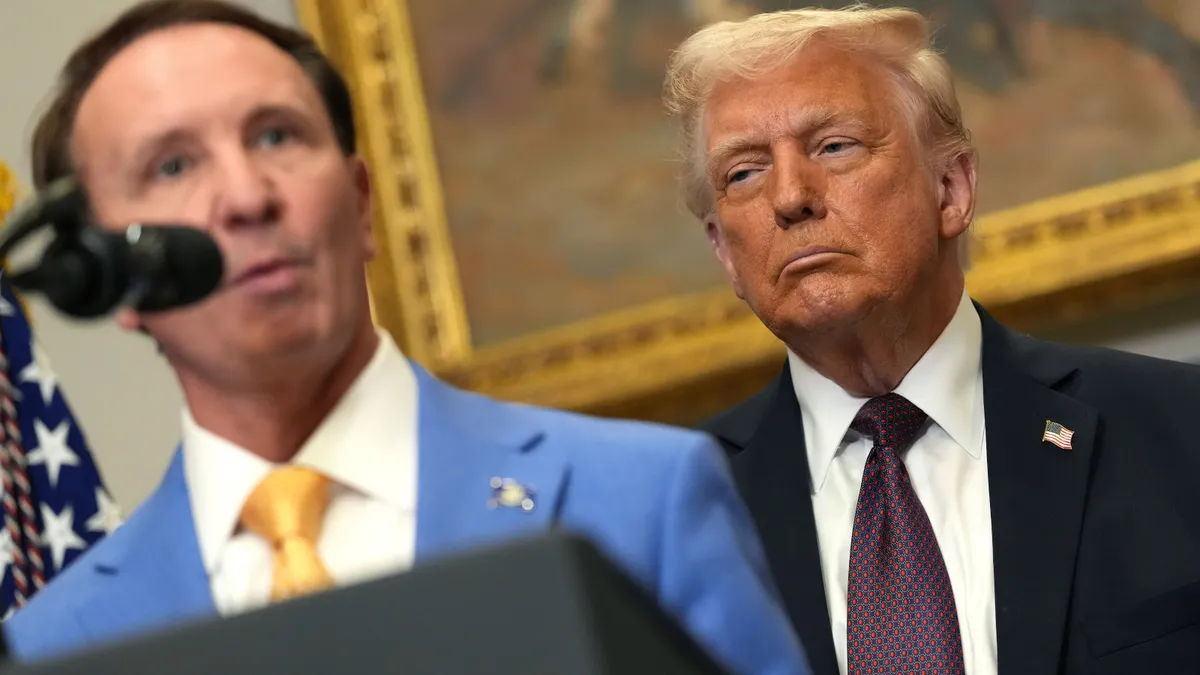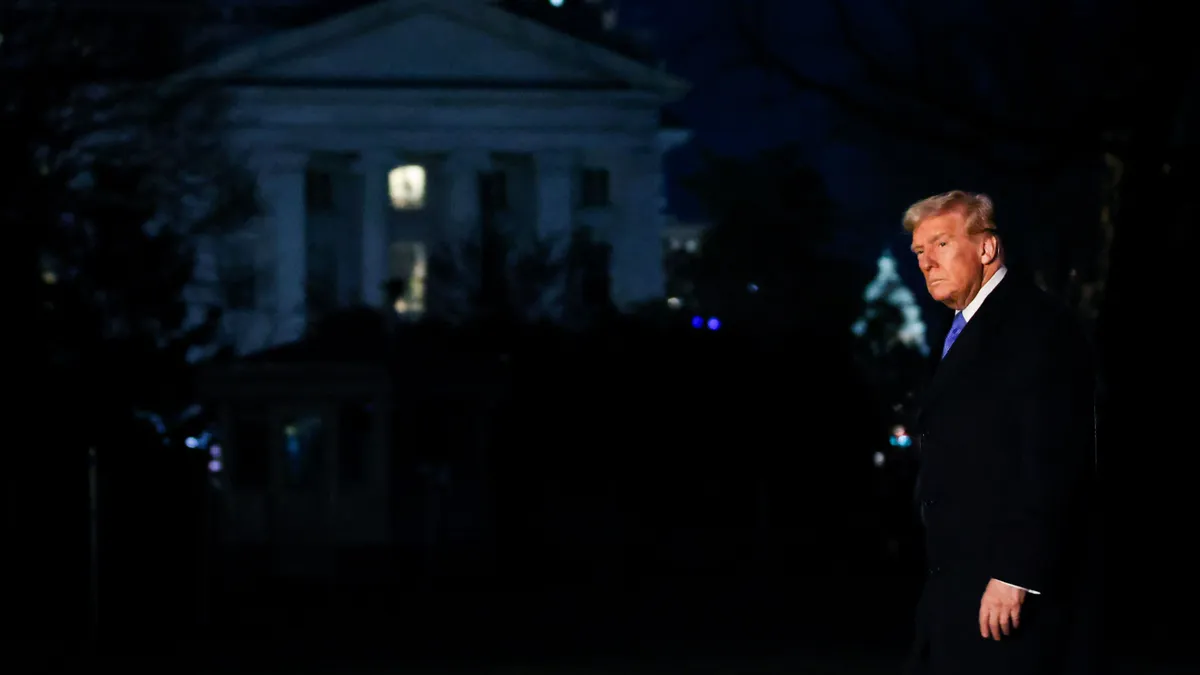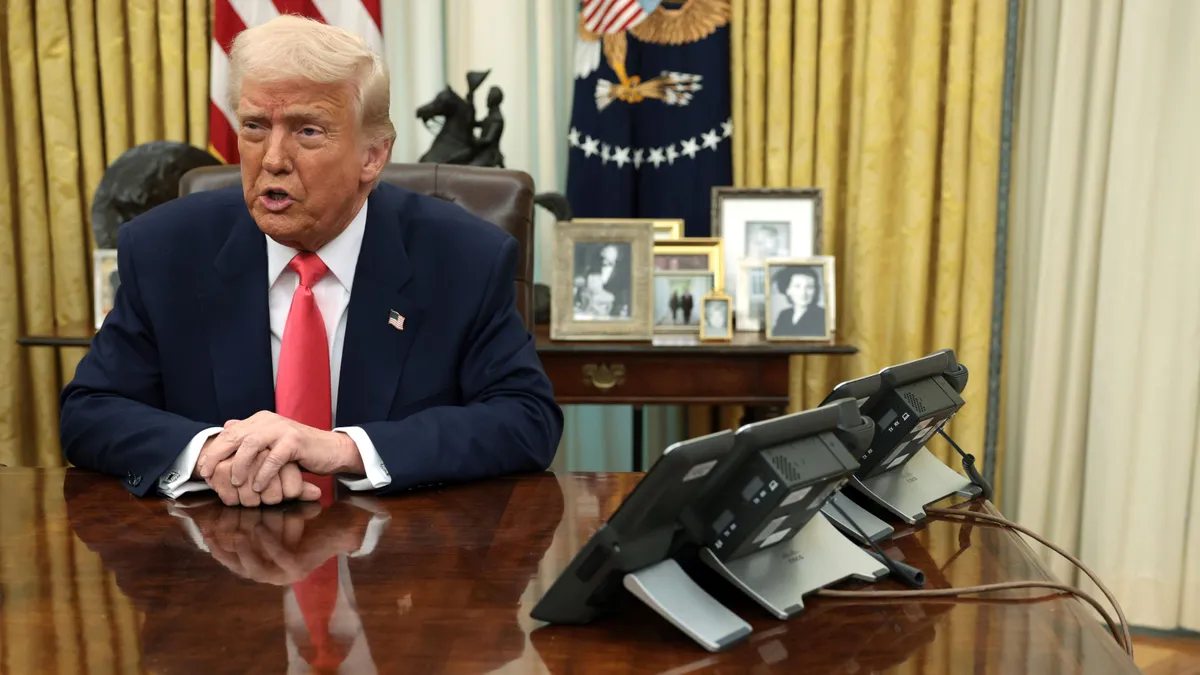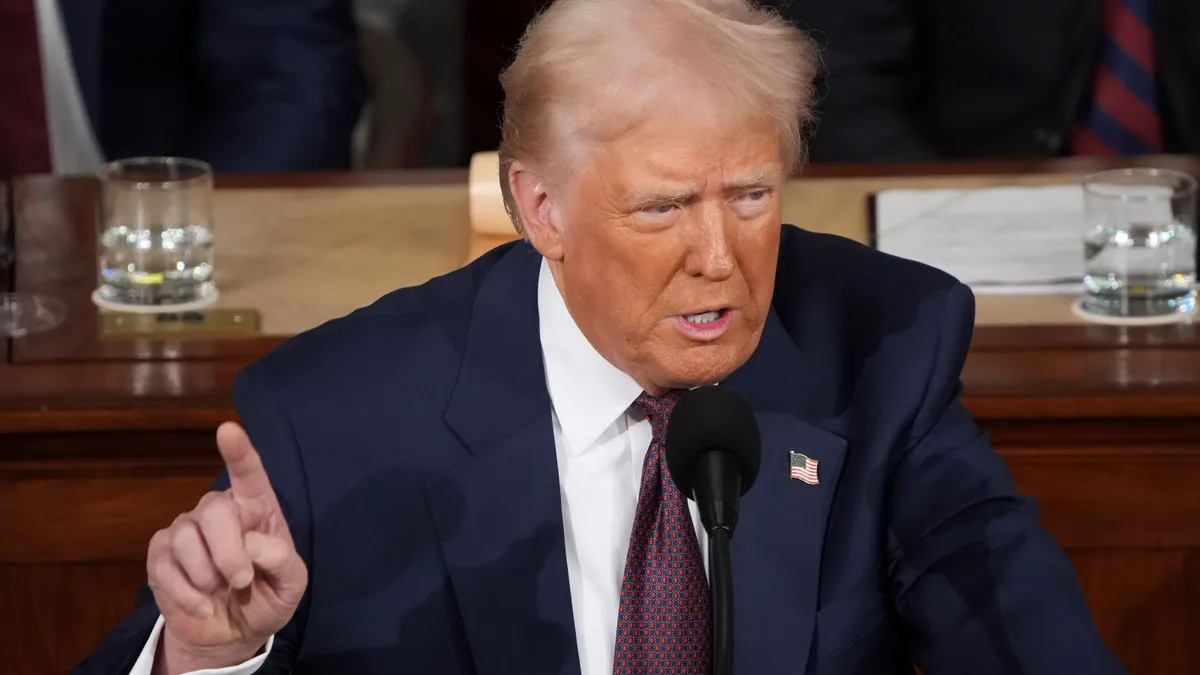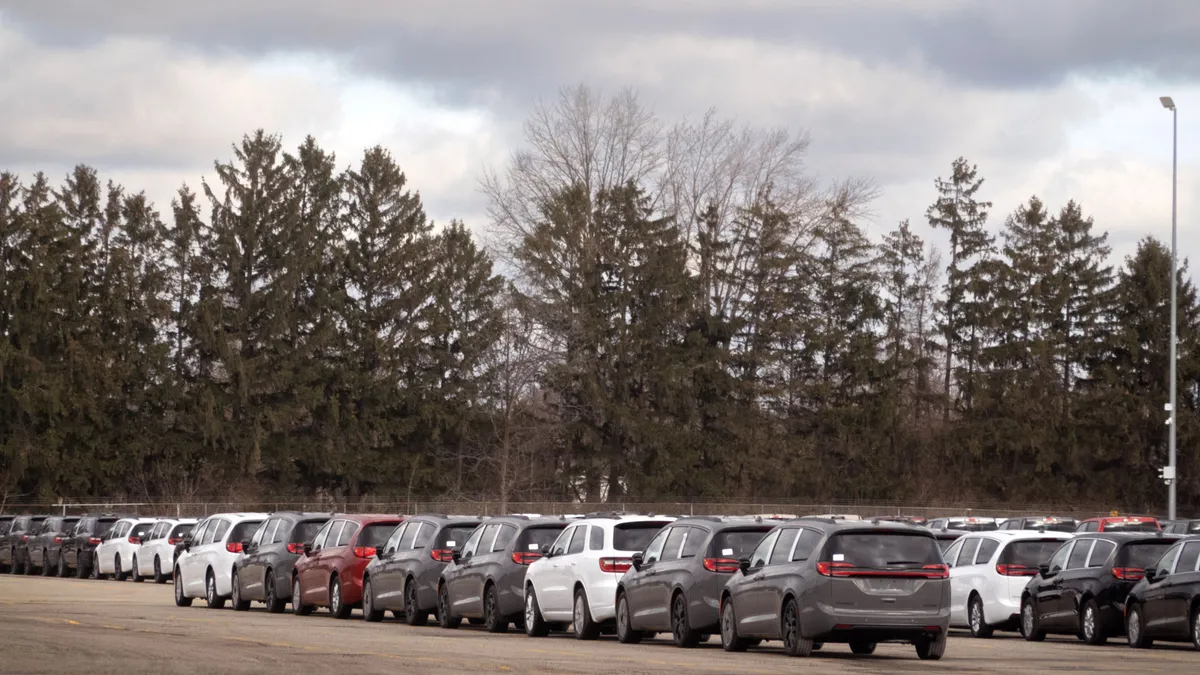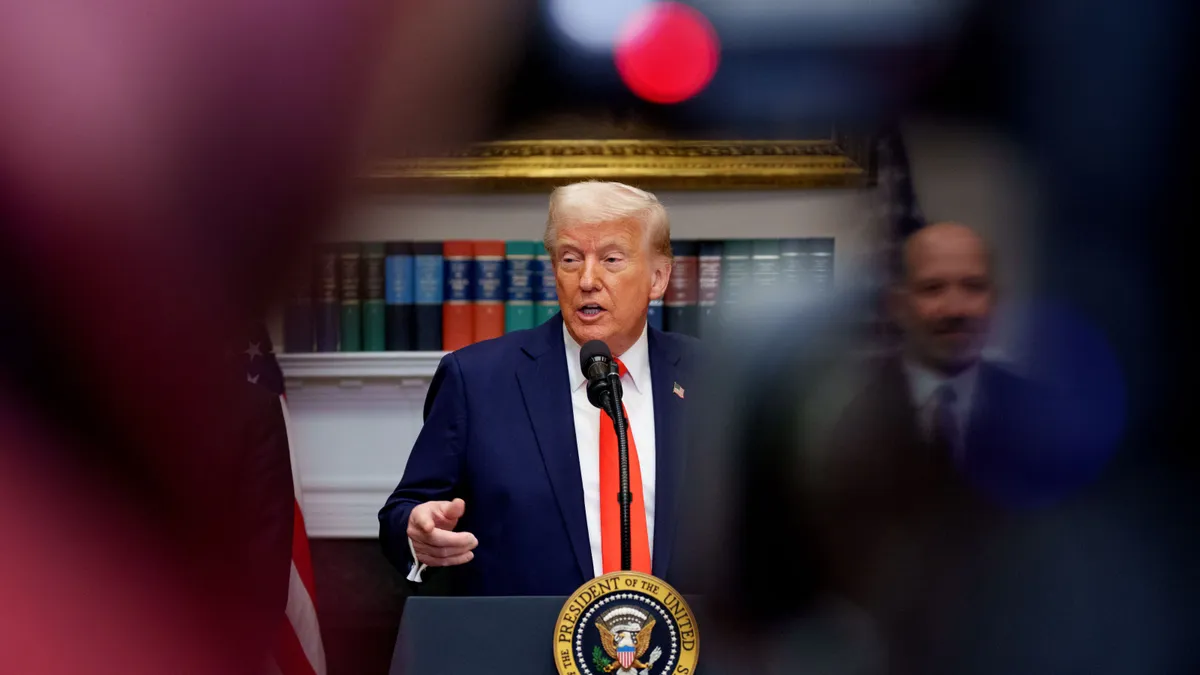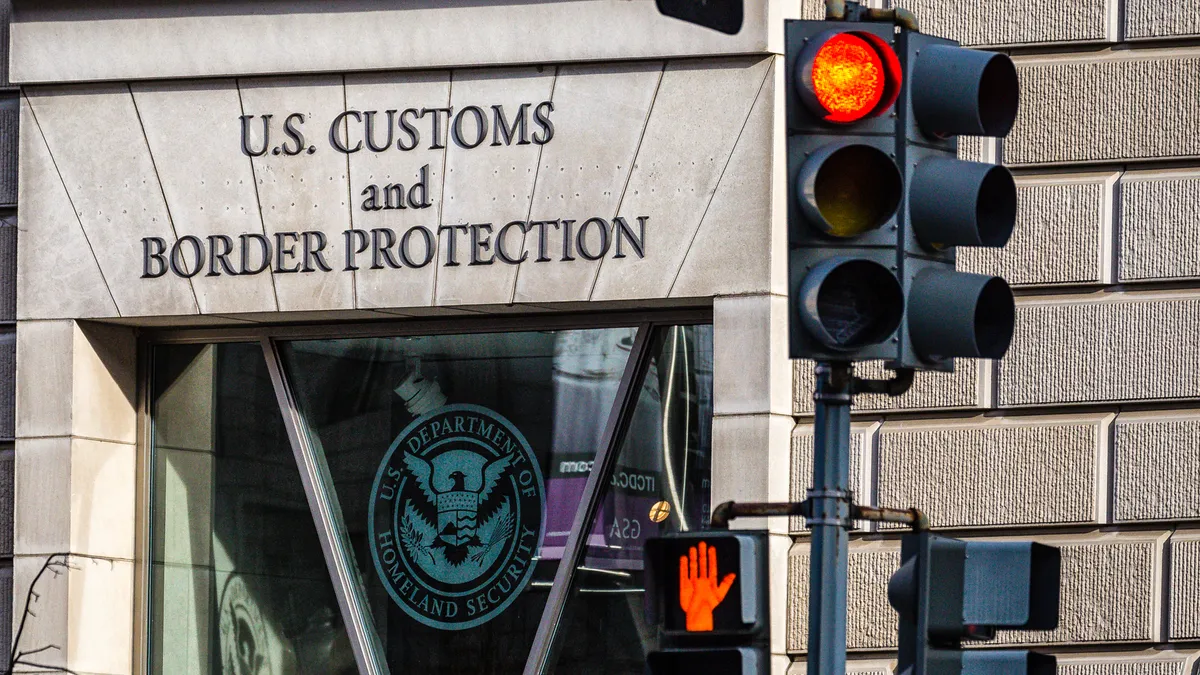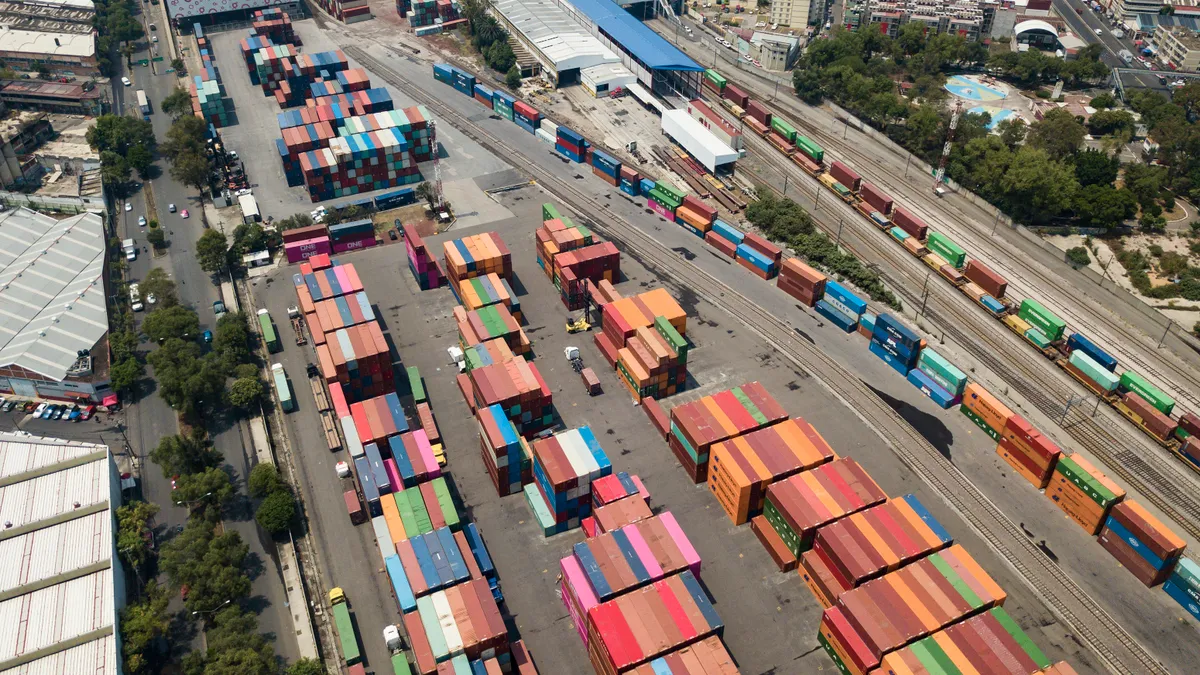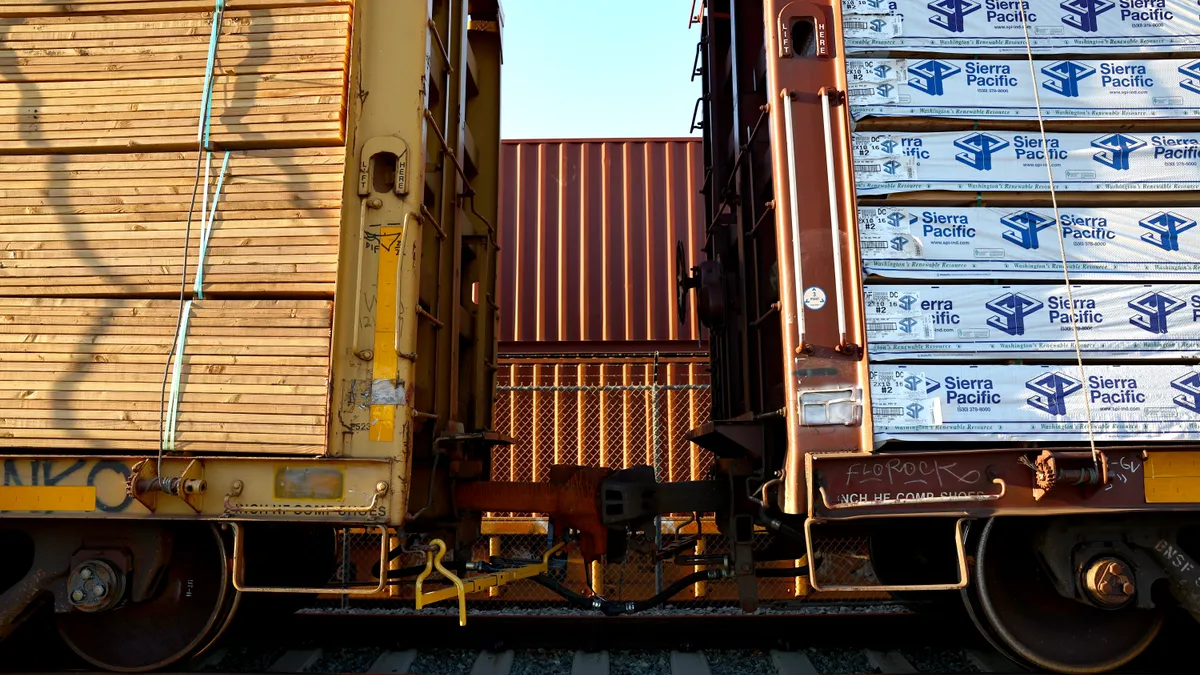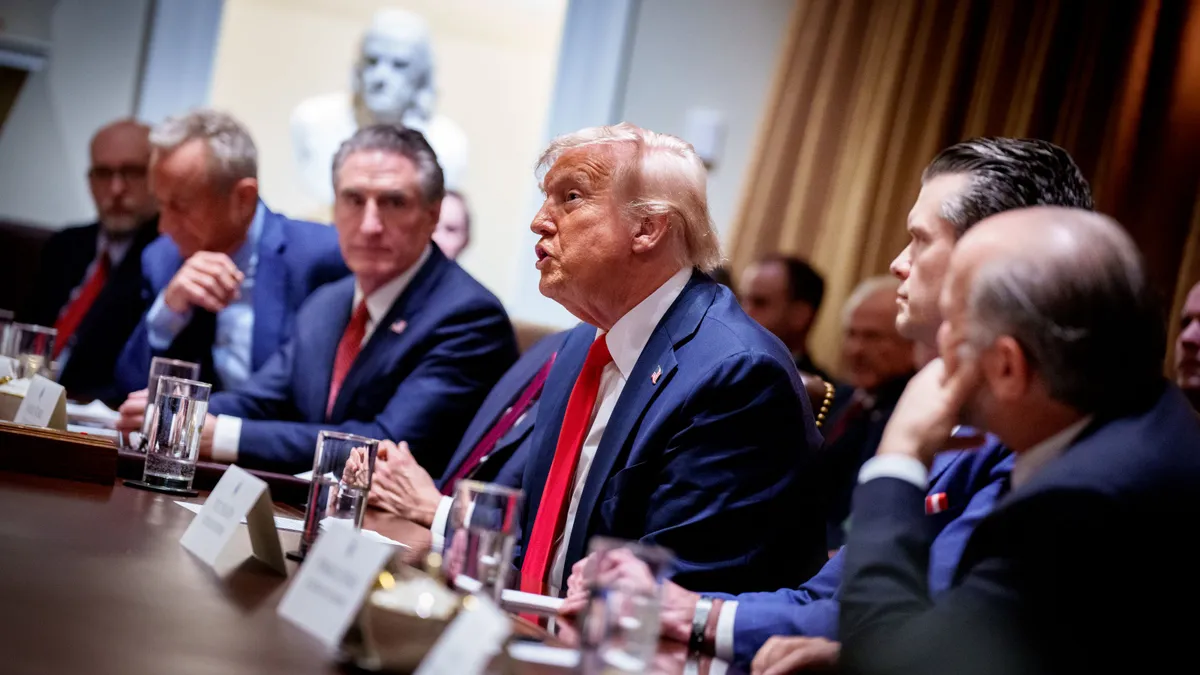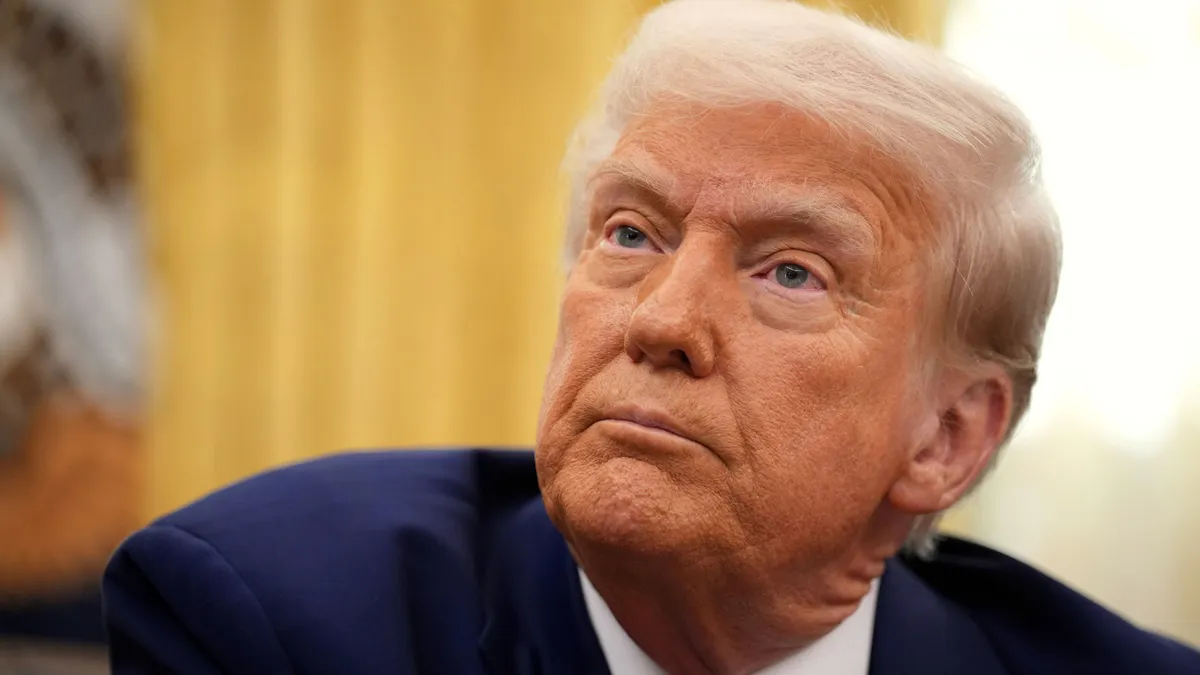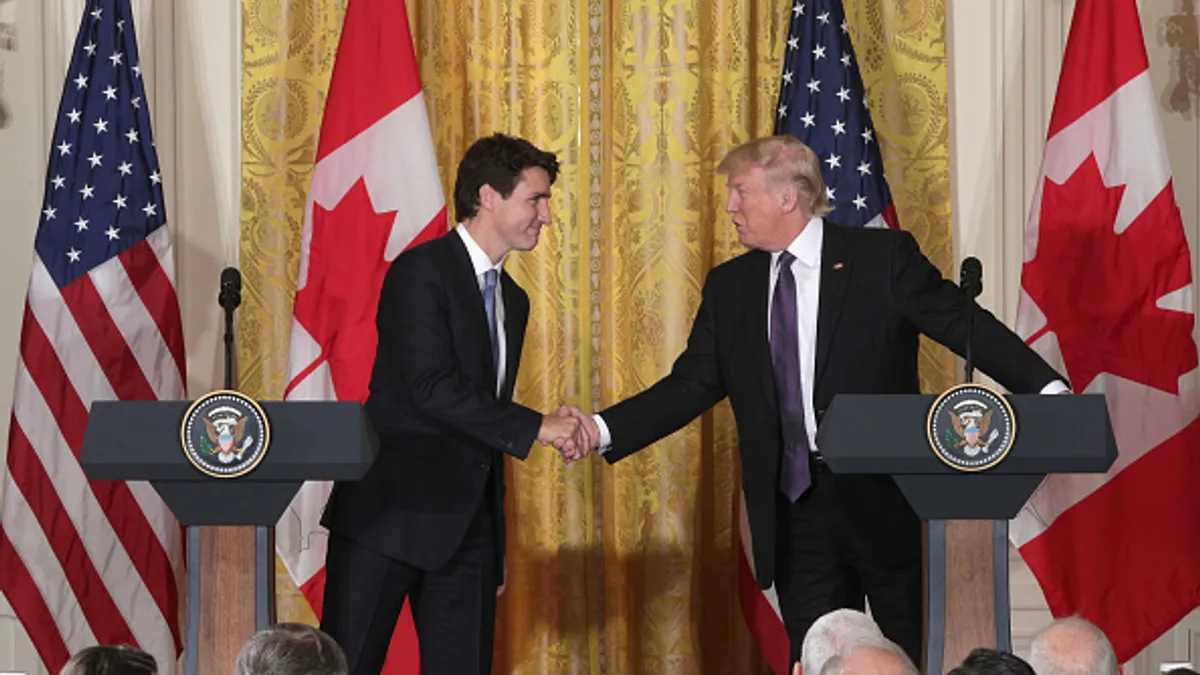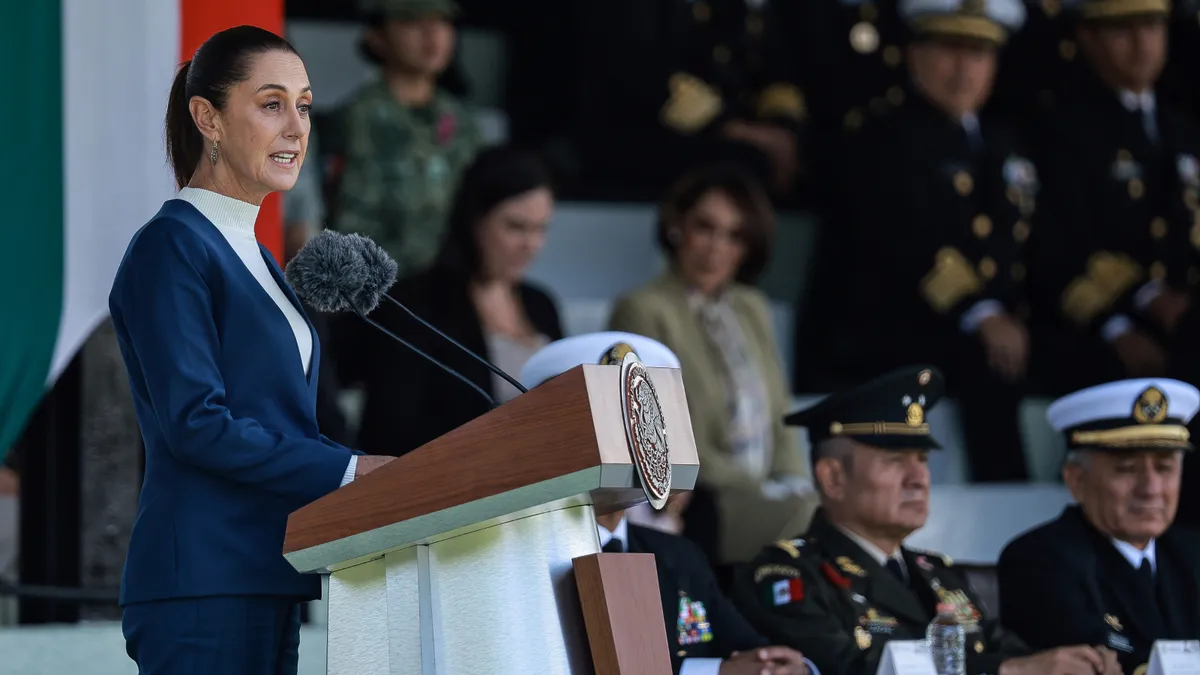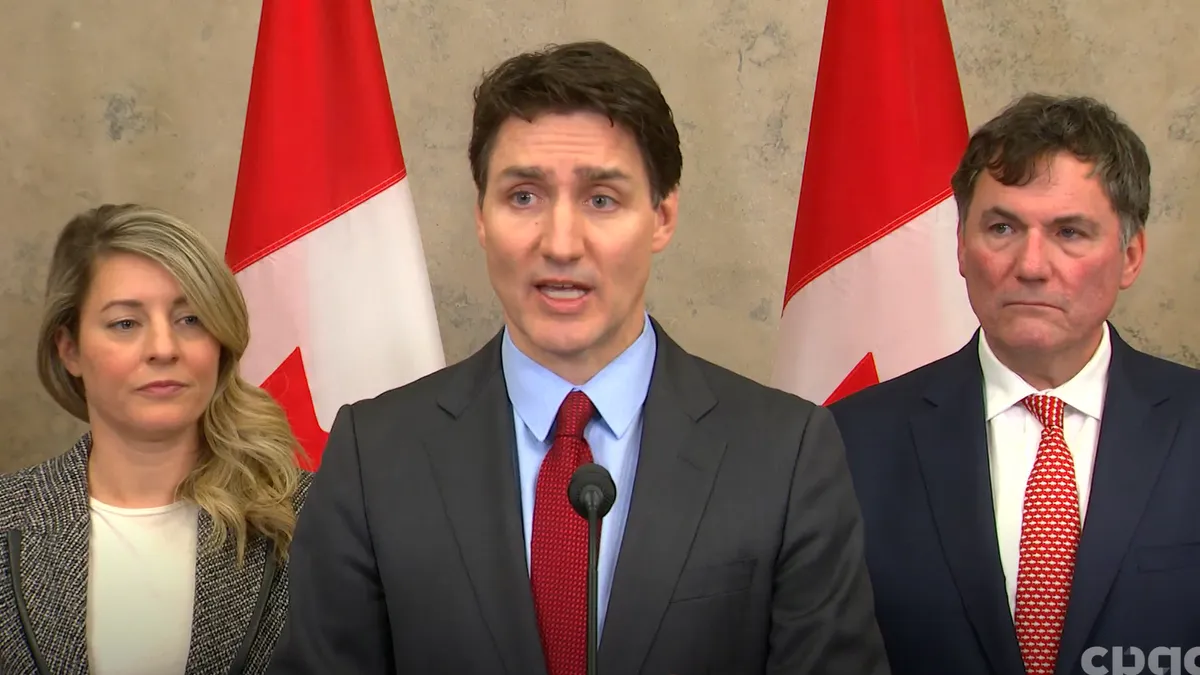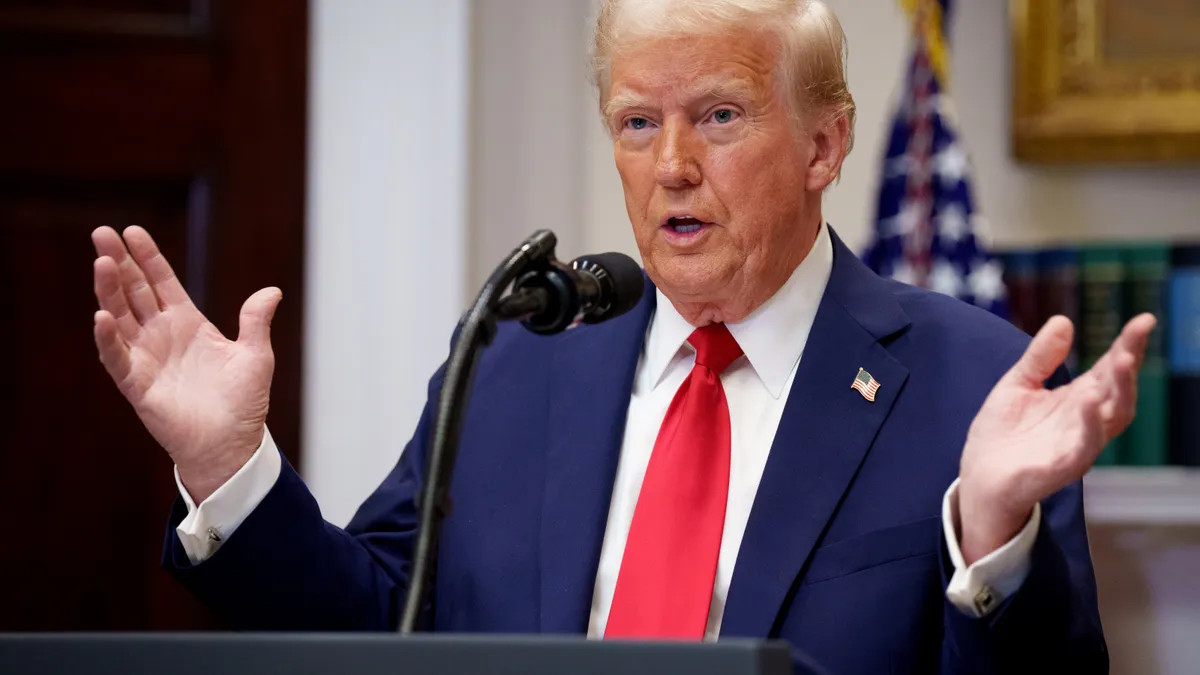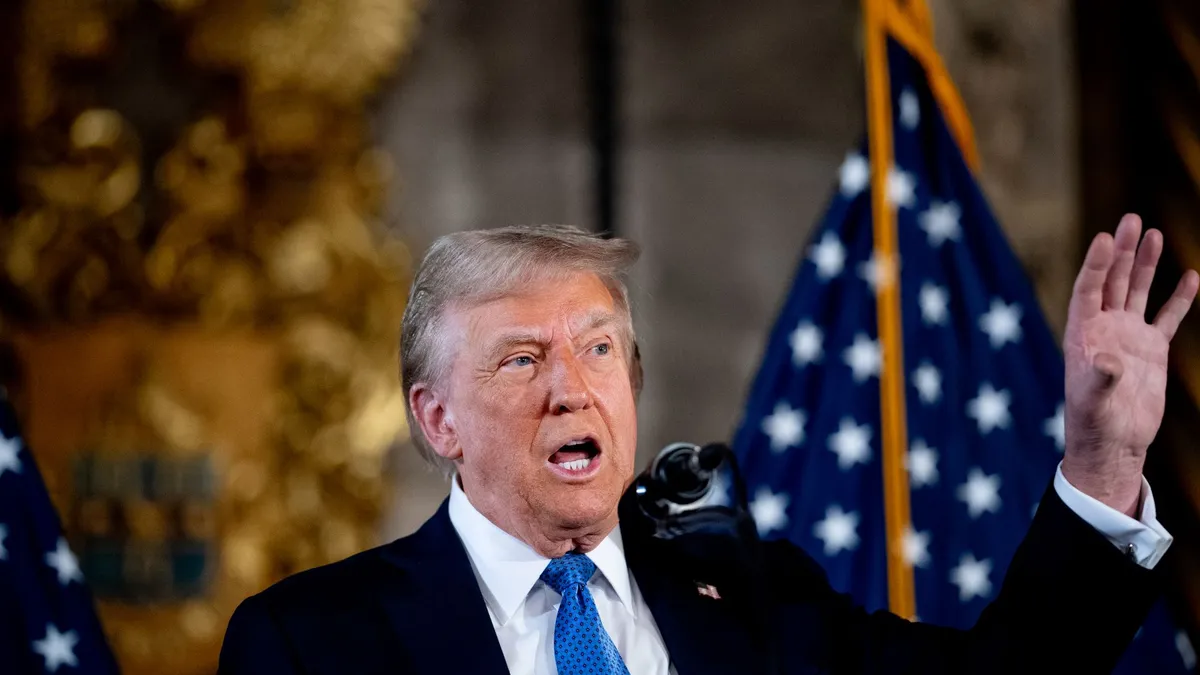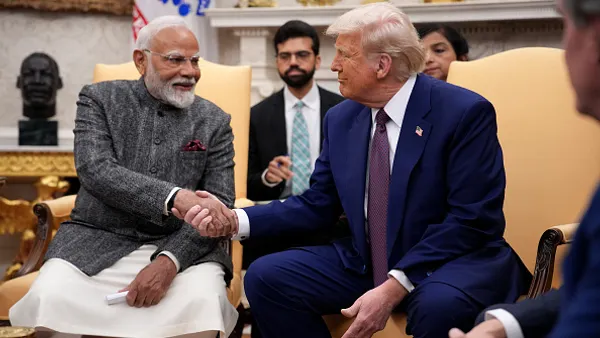President Donald Trump possesses both statutory and constitutional authority under a 1977 emergency powers act to impose sweeping tariffs on U.S. trading partners to address the nation’s trade deficit and curb drug trafficking from Canada, China and Mexico, according to the government’s opening brief filed with the Supreme Court on Sept. 19.
The submission marked the first step in a legal battle before the high court, pitting the Trump administration against seven businesses and 12 states. These parties, who previously won lower court decisions, argue that the president exceeded his authority by imposing tariffs of unlimited amount and duration under the International Emergency Economic Powers Act. The nineteen plaintiffs resulted from the Supreme Court consolidating three similar lawsuits challenging the 10% to 50% levies announced by Trump on April 2.
The brief, led by Solicitor General D. John Sauer, argued that the lower courts erred in their IEEPA interpretations, that challenges to the president's authority to declare national emergencies threaten U.S. security and economic autonomy, and that the courts should give significant deference to presidential actions during national crises.
Also, Trump did not supersede Congress's constitutional authority to set tariffs because, in passing IEEPA, the legislature imposed restrictions, including a default one-year limit on emergencies, an enumerated list of exceptions to the authority to regulate, and comprehensive reporting requirements, per the brief.
"Congress thus gave itself, not federal courts, primary oversight over the President’s exercise of IEEPA powers," the brief said.
The document took issue with the plaintiffs' argument that IEEPA doesn't authorize the use of tariffs because the term does not appear in the statute. The administration argued that the "unjustifiable 'magic words' requirement" was contrary to the Supreme Court's case law, which had found that exact wording wasn't necessary if the intent of a statute was otherwise clear.
"That IEEPA does not use the word 'tariff' is immaterial," the brief said.
The plaintiffs argued that even if IEEPA authorizes tariffs, it doesn't sanction a mass-scale overriding of levies set by Congress. But the administration argued that neither the plaintiffs nor the Court of Appeals for the Federal Circuit, which ruled against Trump on Aug. 29, identified "what limited tariffs are acceptable, or how to tell," the brief said.
Furthermore, challenging the president's authority during a declared national emergency could have potential diplomatic and policy fallout, according to the brief. Therefore, the justices should give significant latitude to the president.
"President Trump determined that tariffs are best suited to address the trade-deficit and drug-trafficking emergencies, and those determinations warrant deference," the brief said. "IEEPA provides that Congress and the political process, not the judiciary, serve as the principal monitor and check on the President’s exercise of IEEPA authority."
Denying the president the ability to impose tariffs at the breadth he chooses "would expose our nation to trade retaliation without effective defenses and thrust America back to the brink of economic catastrophe," per the brief.
The dire consequences painted by the administration do not alter the fact that a ruling in Trump's favor would have far-reaching repercussions, according to Christopher Swift, a partner in Foley & Lardner’s international trade and national security practice.
“This case has broad constitutional consequences, not just economic ones," Swift said in an email to Supply Chain Dive. "If the Supreme Court determines that the president can use IEEPA to impose tariffs, then it will be the first time in U.S. history that a president would have the ability to impose a tax without prior Congressional approval. That would be a profound – and potentially destabilizing – change in how the courts approach executive power.”
This year, Trump has installed both “reciprocal” and “trafficking” tariffs on a range of trading partners. He imposed the former on nearly all countries and the latter specifically on Canada, China and Mexico in a bid to curb the flow of fentanyl into the United States from those countries. He imposed the reciprocal levies ranging from 10% to 50% on nearly all countries.
The 49-page brief came 10 days after the Supreme Court agreed to expedite the case, setting oral arguments for Nov. 5. The court has set a deadline of Oct. 20 for the plaintiffs' response brief.
Editor's note: This story was updated to include a comment from Foley & Lardner's Christopher Swift.


